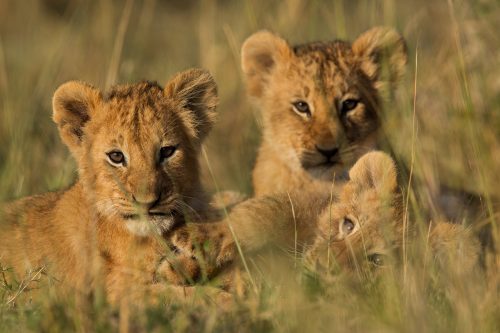
Two weeks in the UK was enough to leave me yearning for open spaces and the wilderness. I love the order of the city, but long for the chaos and unpredictability of the wild. Walking through the streets of London, I found my mind to be almost contained and enclosed, best described as having my sight shortened – the Maasai Mara counteracts this and I breathe a sigh of relief as I venture out into the sea of grass. [f 6.3, 1/1000, ISO 250, -0.33]
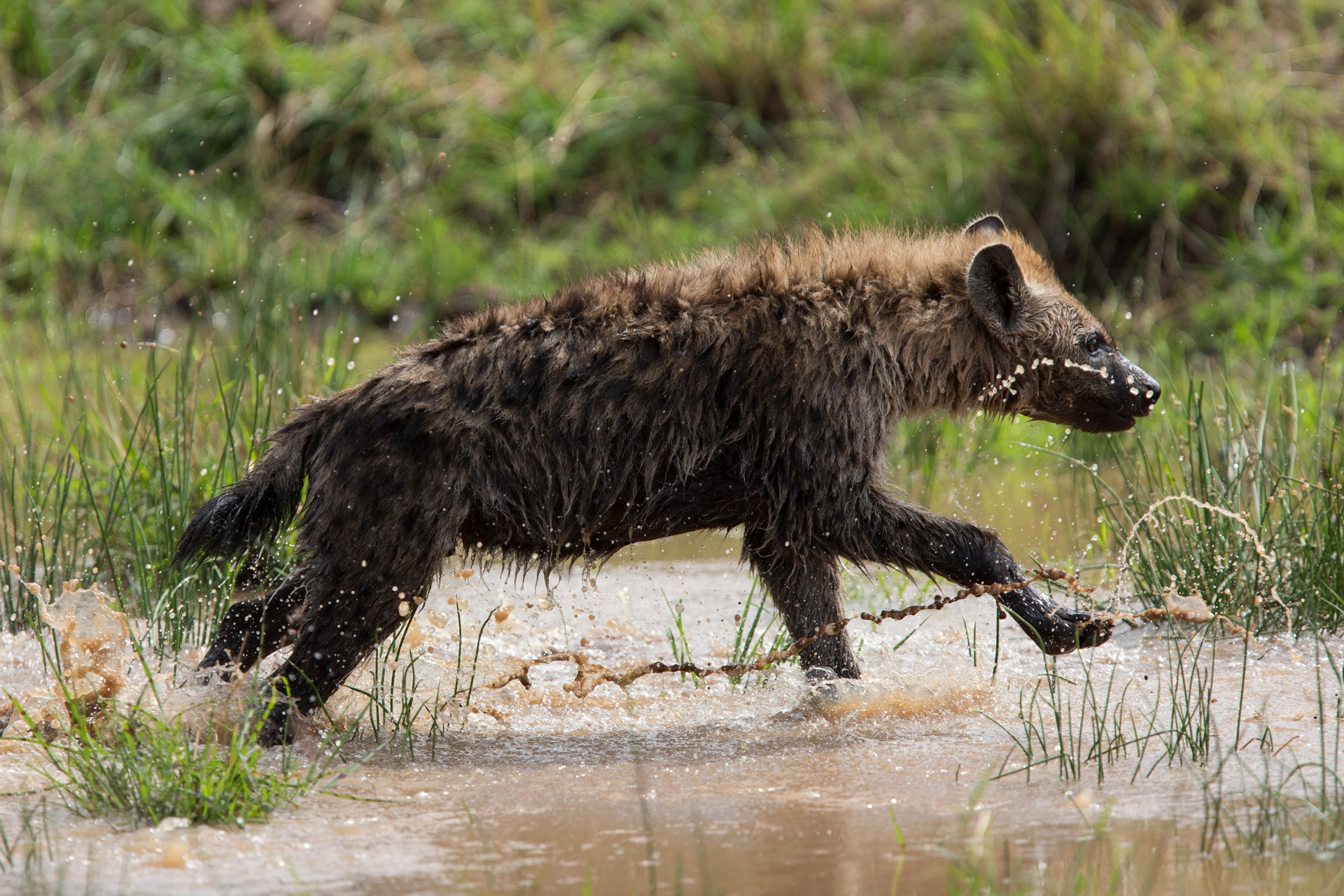
This week, I had the privilege of hosting my parents at the lodge. There is something very special about being able to share this place with loved ones. There was a joy in the air as I drove them and their friends down to the border. It seemed fitting that, with my mother by my side, we witnessed three young hyena playing in a water-filled depression. For over 20 minutes, these hyenas were just loving life, racing around, swimming, jumping, biting and playing. [f 4.5, 1/3200, ISO 500]
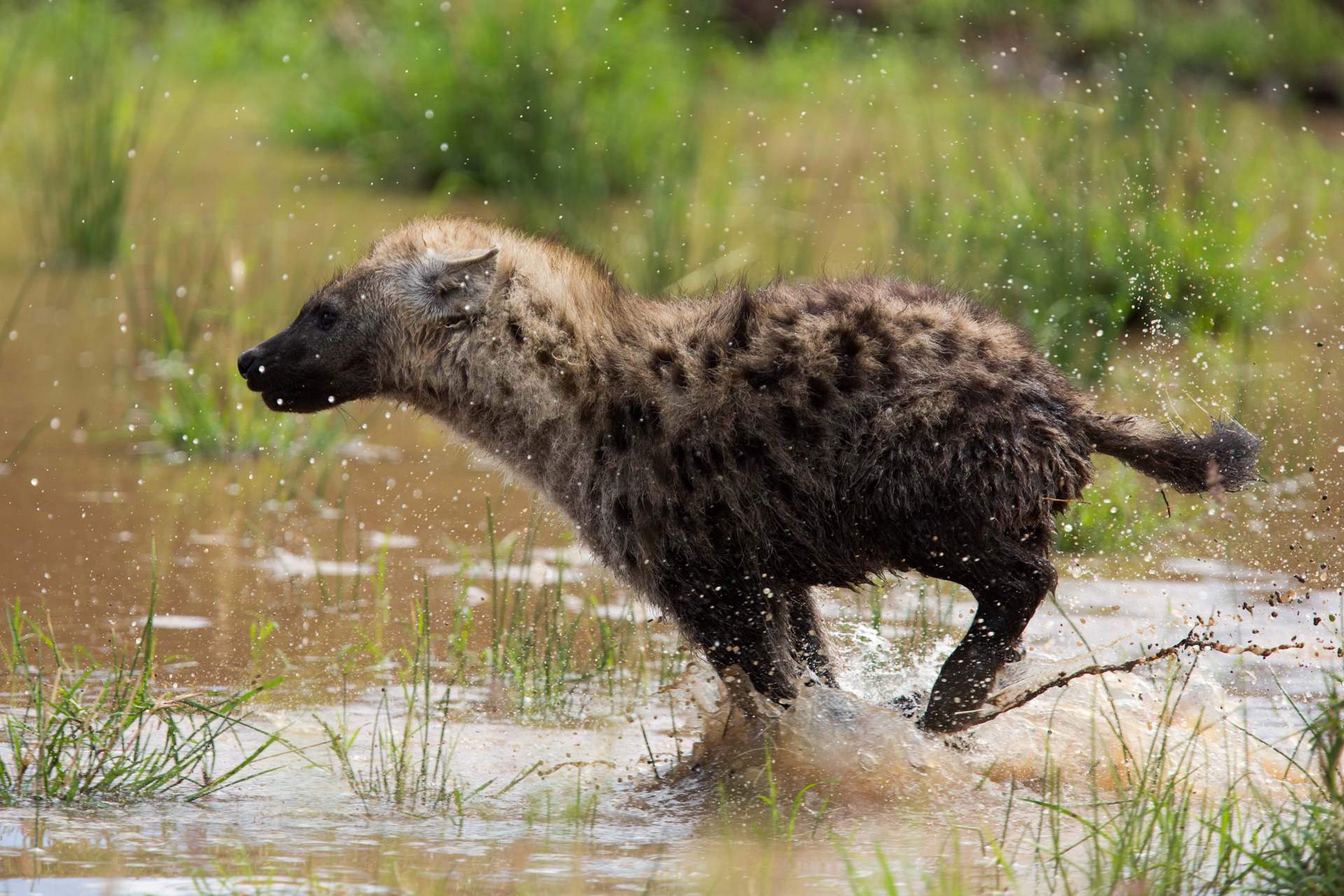
There was no explanation for their behaviour other than they were having fun. [f 4.5, 1/3200, ISO 500]
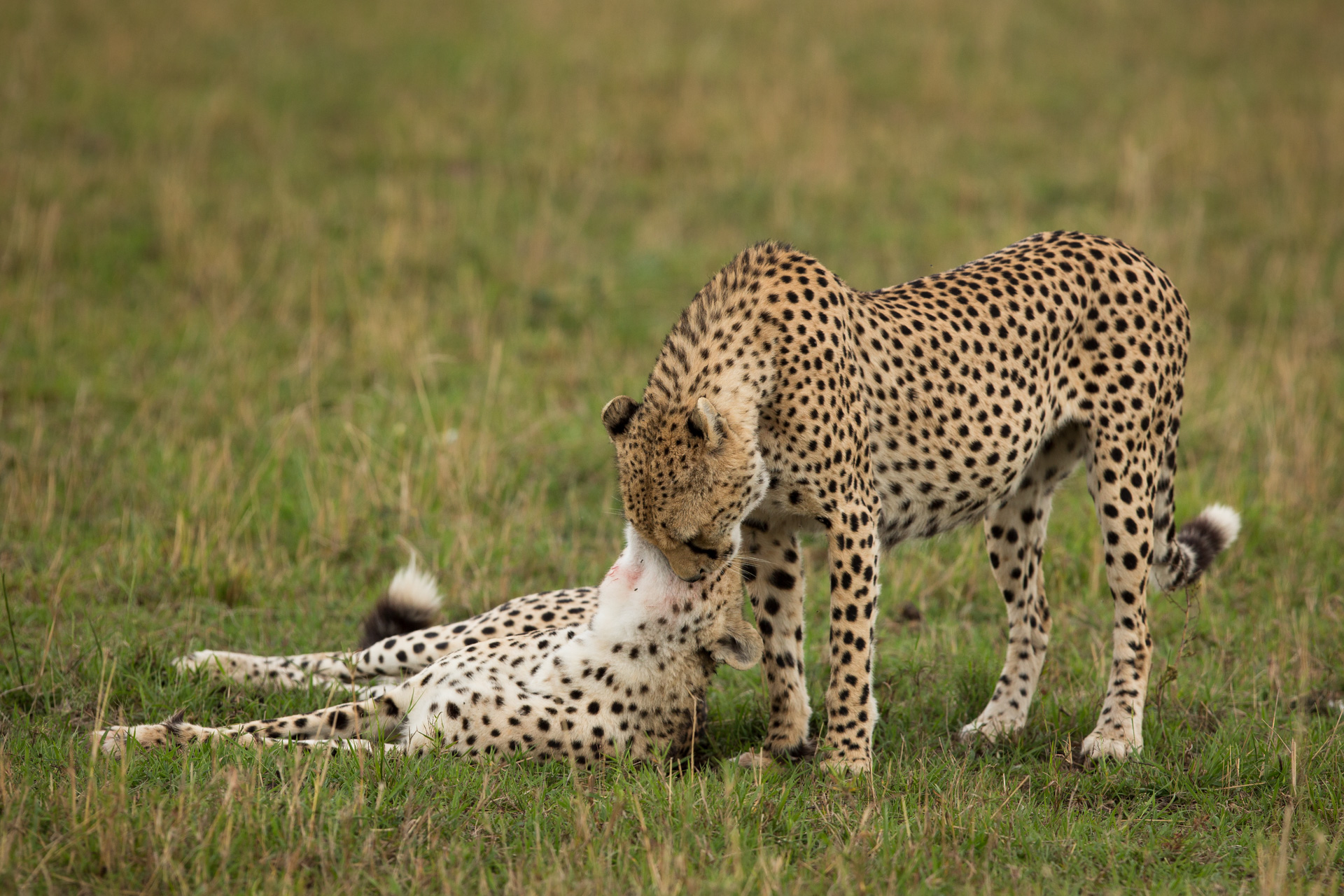
It was down by the border that we also managed to spend some time with these two cheetah brothers. They had obviously just finished a meal and were cleaning the blood off of each other. [f 5.0, 1/400, ISO 1000, -0.33]
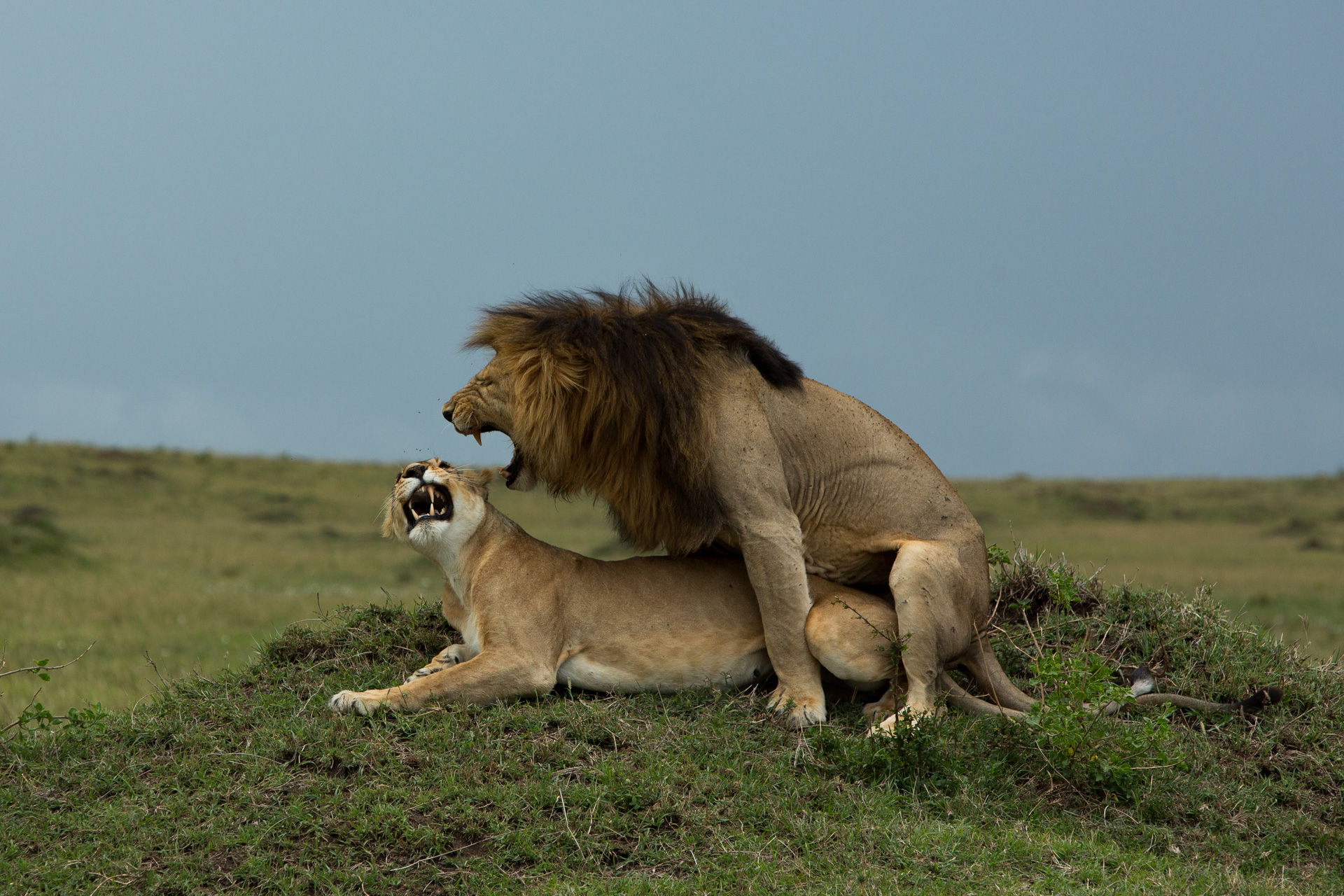
I am very open about my bias towards lions and a large amount of my time out in the Mara is spent photographing these beautiful animals. On this morning, we came across three males mating with two females – the grass was short, the landscape vast, and most wonderfully we were the only car there the entire time. [f 6.3, 1/1600, ISO 500, -0.67]
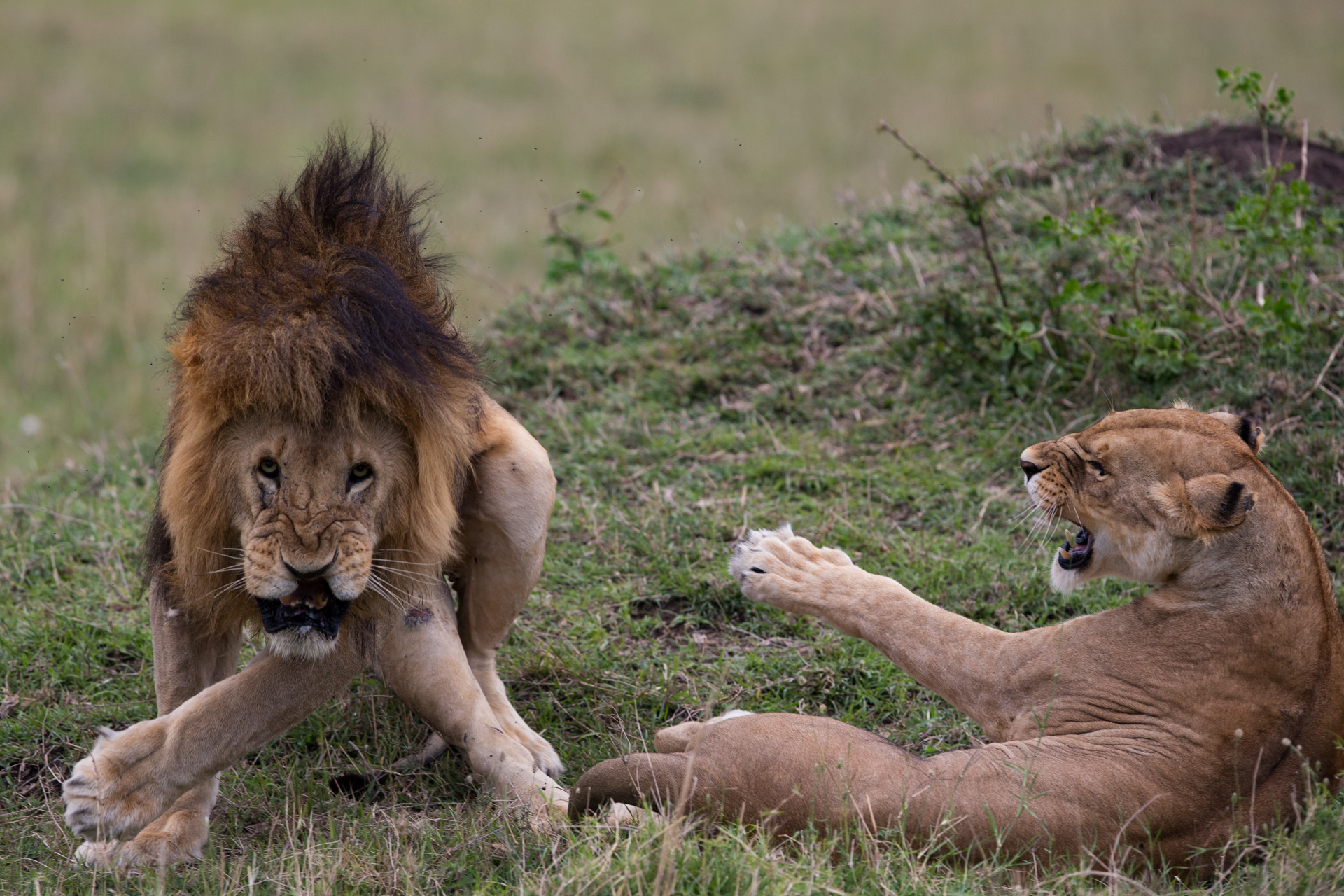
On this specific occasion, the male involved was one that I have only seen a few times as he tends to stay across the border in the Serengeti. You will see his damaged upper lip gives him a rather comical and unfortunate look. [f 4.5, 1/1250, ISO 640, -0.33]
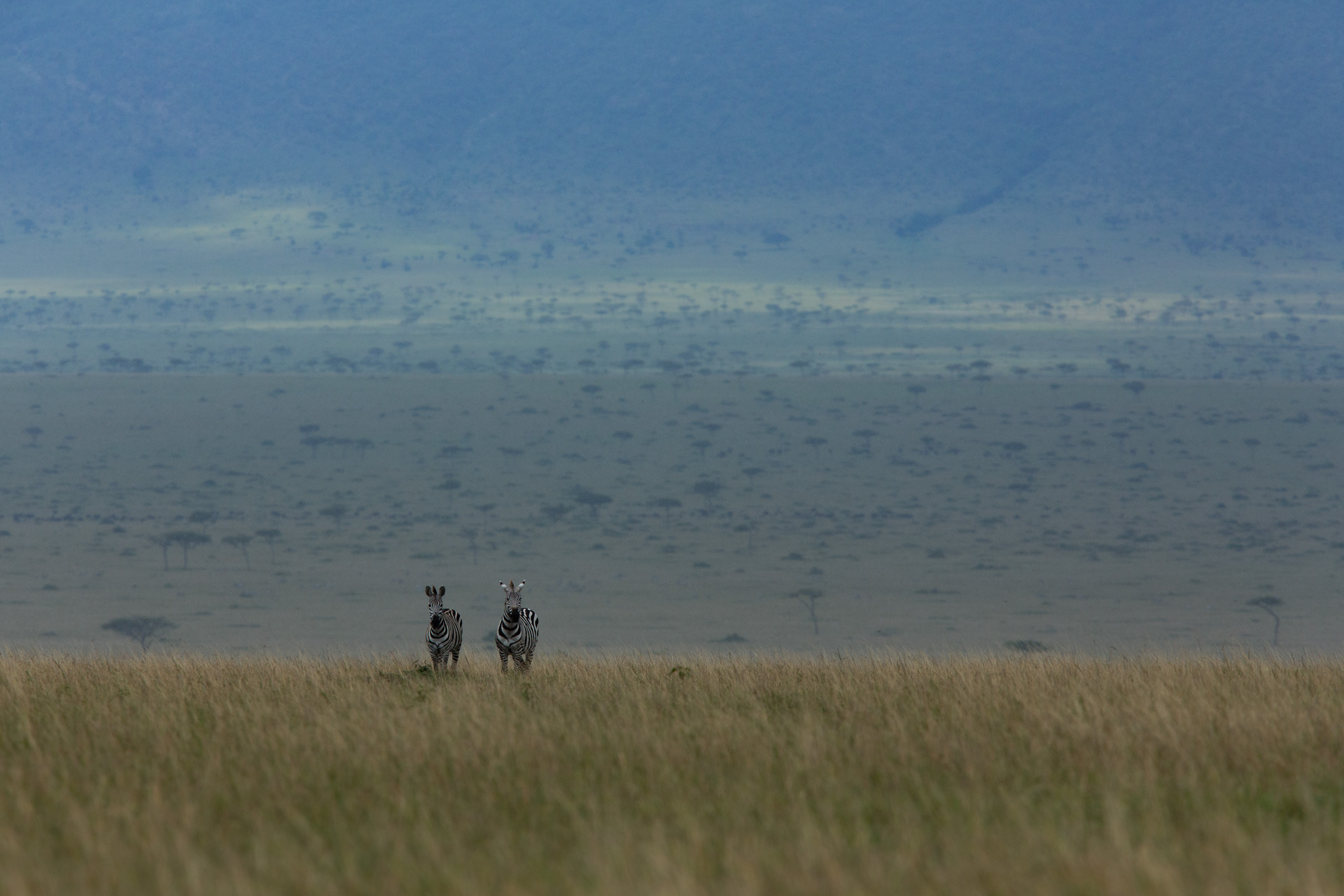
We need wild spaces to exist as they remind us of a world beyond humans. [f 7.1, 1/1600, ISO 1600, -0.67]
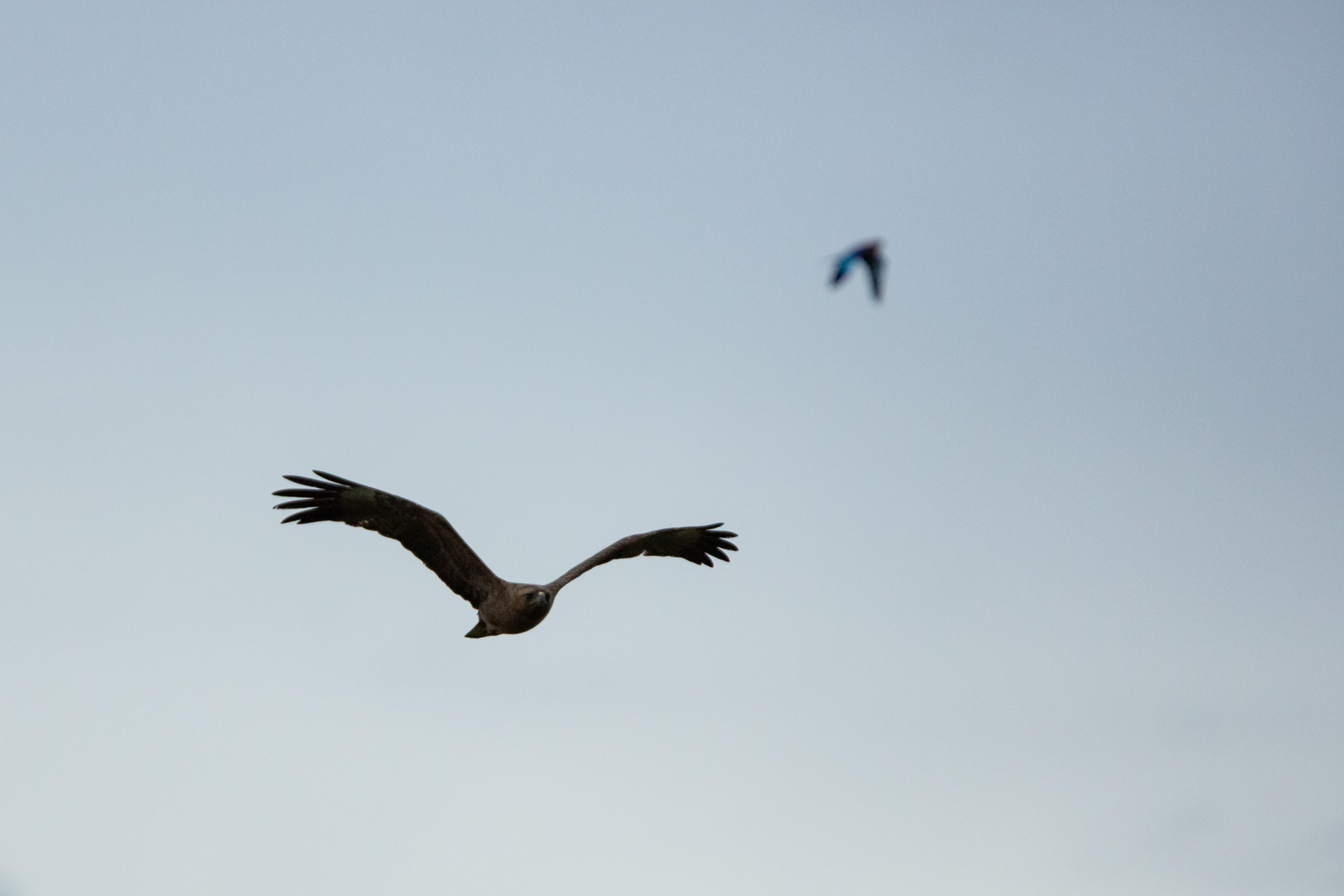
We had some rather serious birders on board and so a lot of time was spent photographing them. I’m a big fan of trying to photograph birds in flight as it adds movement, complexity and life to an image. In this case, I had mere seconds to grab my camera and shoot off a few shots of a Wahlberg’s eagle getting dive-bombed by a lilac-breasted roller. [f 4.0, 1/8000, ISO 3200, +0.67]
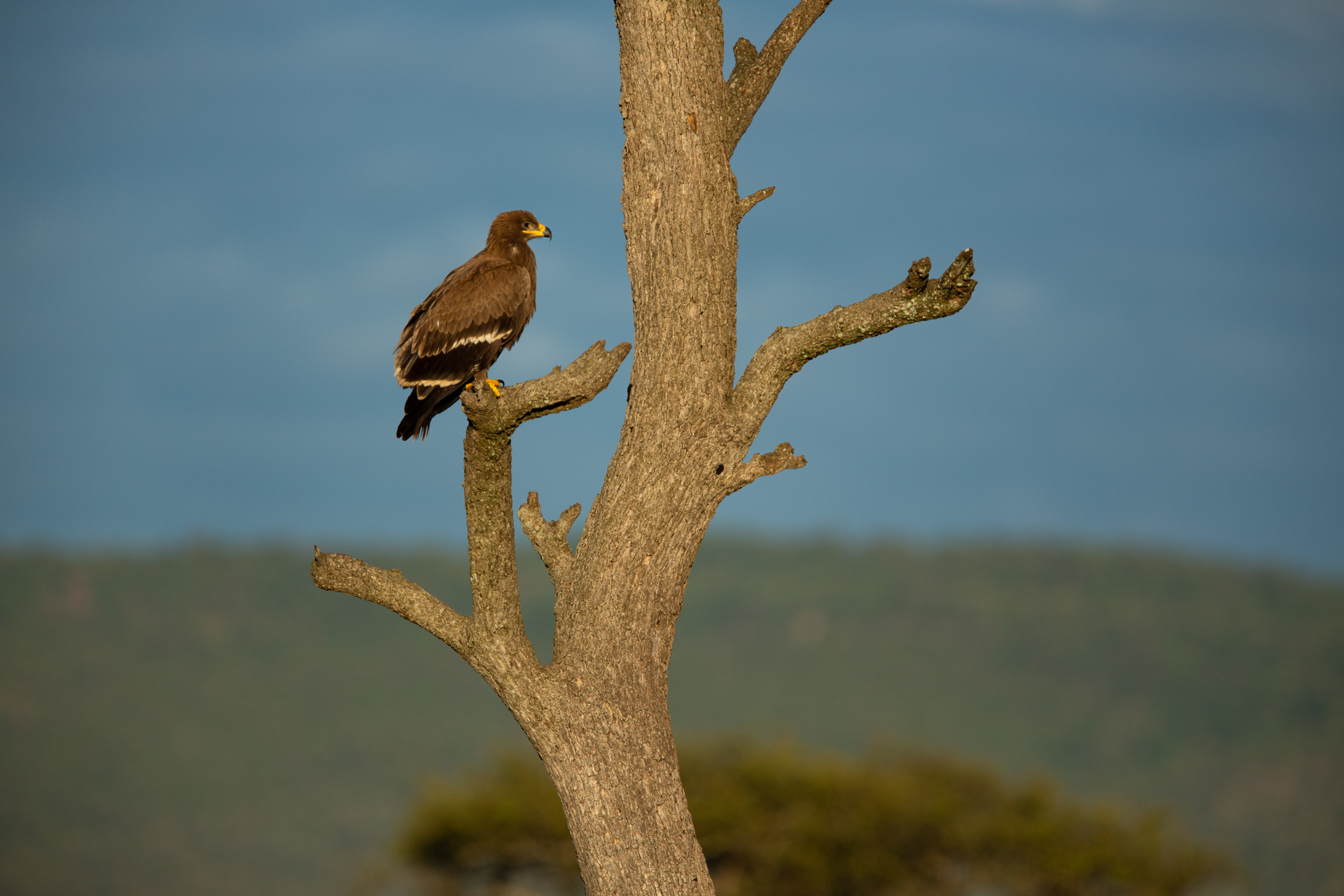
The lighting on this steppe eagle was magnificent. I went for a slightly wider shot as I was enjoying the shape of the tree and the blue of the sky. [f 4.0, 1/2500, ISO 320]
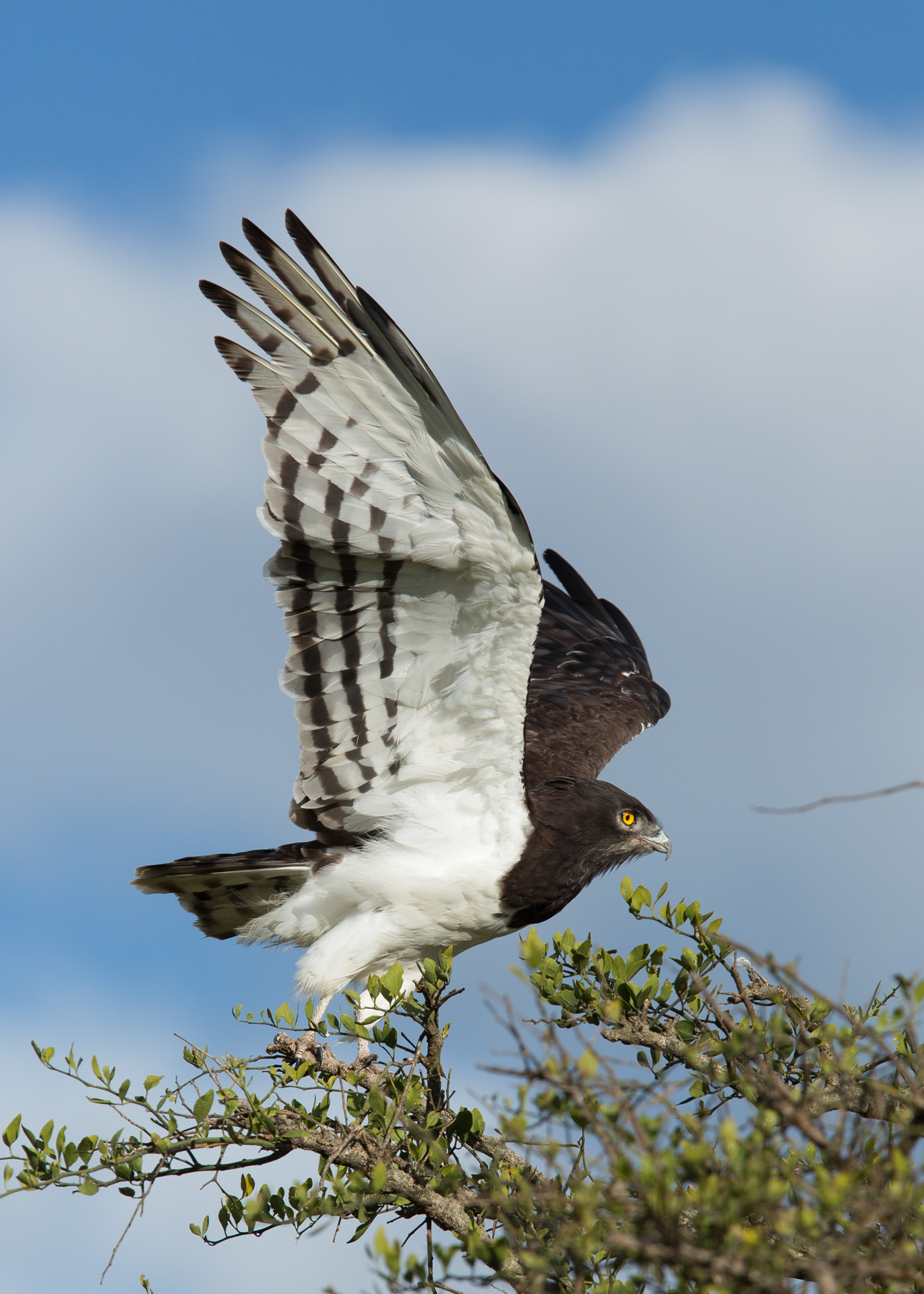
A black-chested snake eagle takes flight. A fast shutter speed was needed to capture the details. [f 5.6, 1/4000, ISO 400]
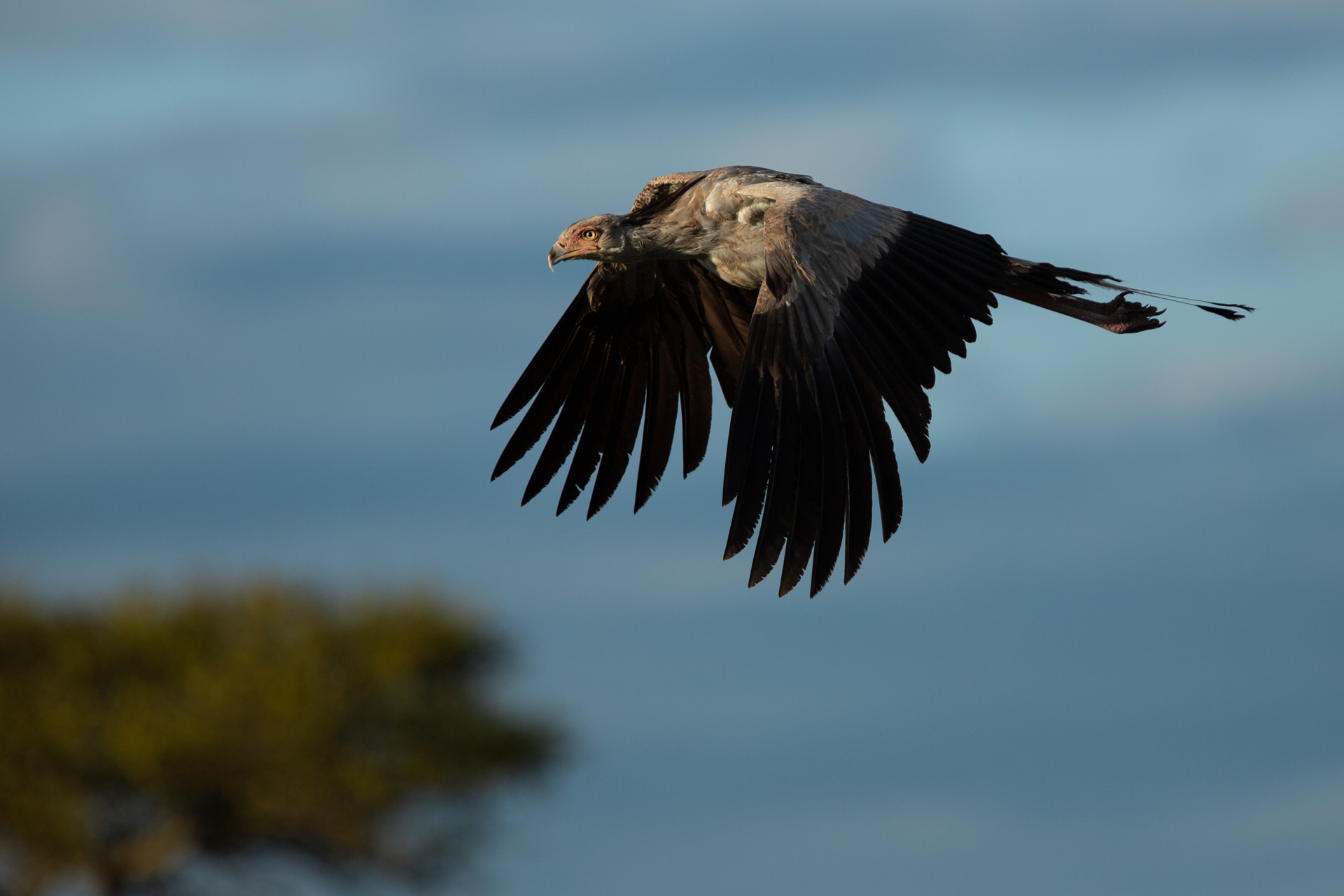
I have wanted to get a good shot of a secretary bird in flight for a long time. The difficulty with bird-in-flight photography is getting the eye of the bird sharp, light and capturing that little sparkle. [f 4.0, 1/4000, ISO 320]
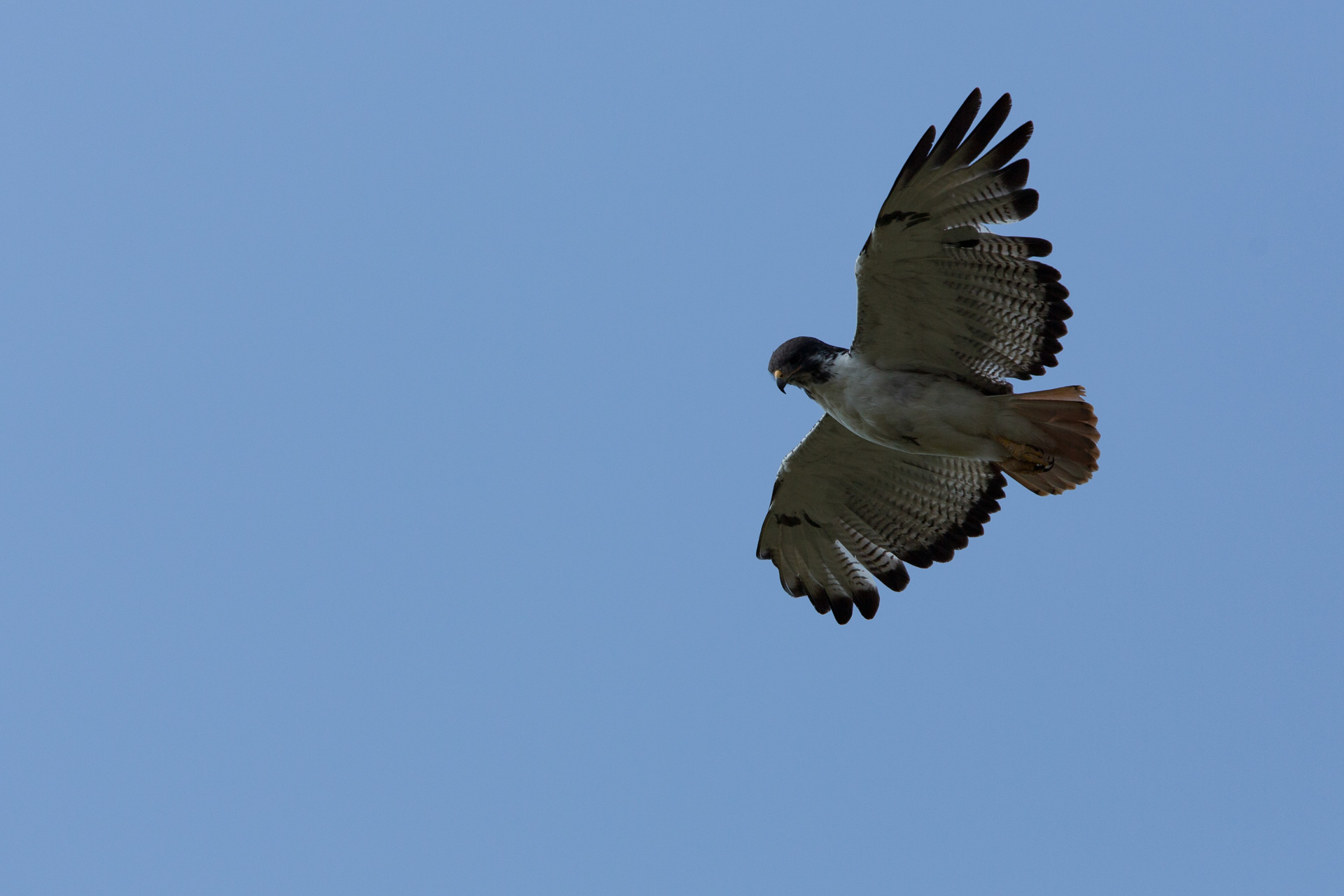
What I like about this shot was that the augur buzzard was not moving; he was literally using the wind off of the escarpment to stay perfectly still. [f 6.3, 1/1600, ISO 250, -0.33]
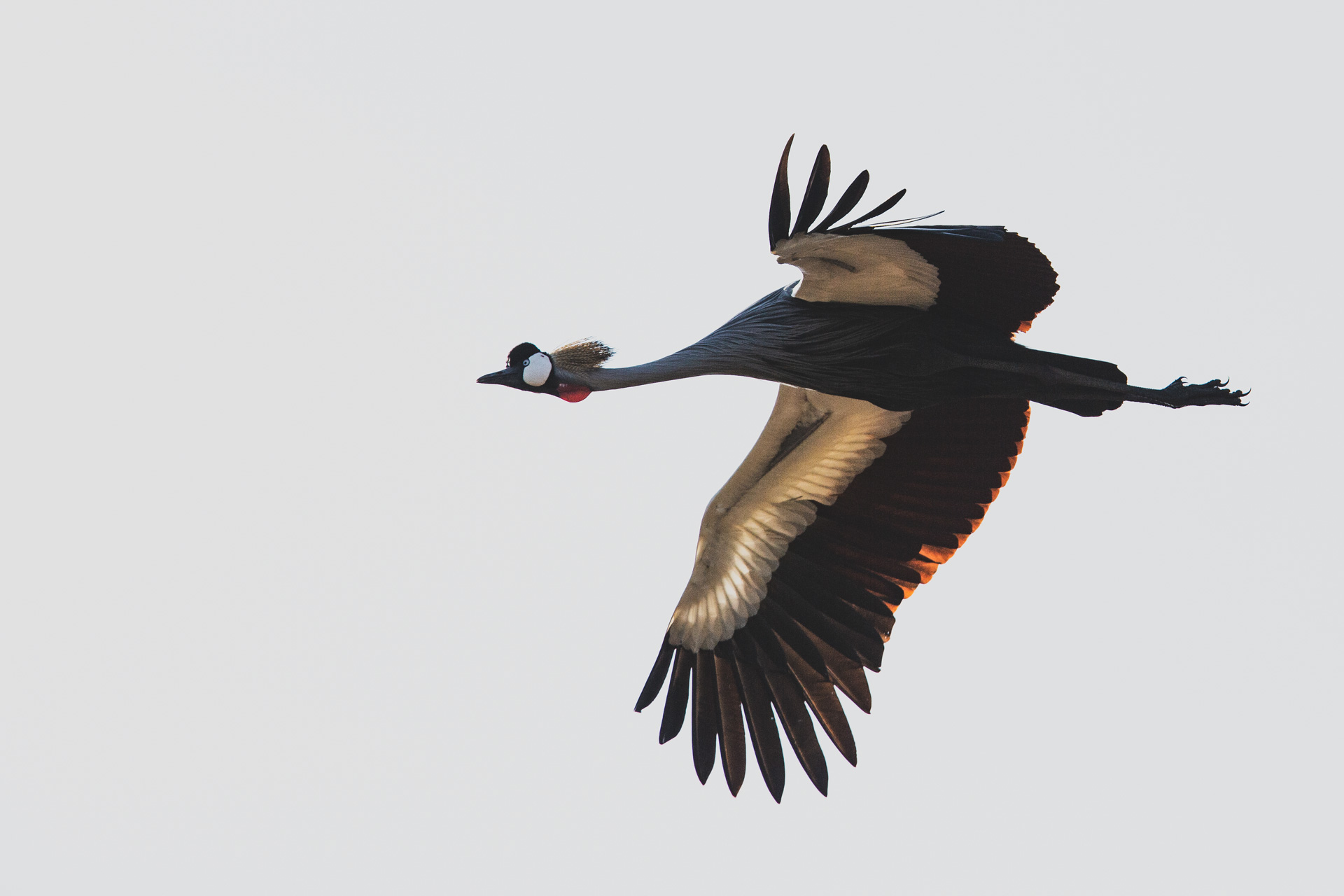
A grey-crowned crane soars overhead. [f 5.6, 1/6400, ISO 500]
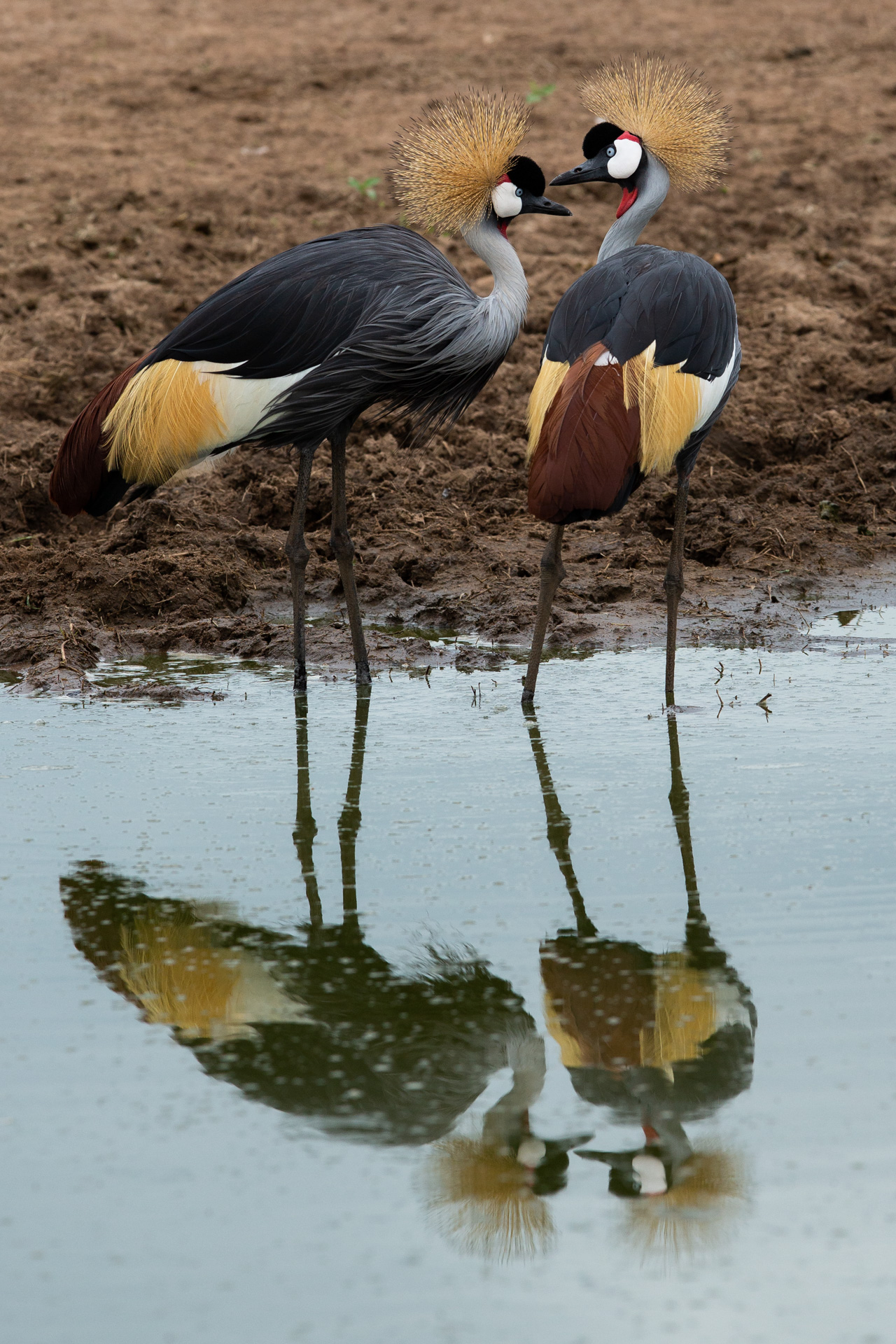
A pair of grey-crowned cranes were extremely affectionate with each other. The key in this shot was the reflection in the water. This pair of birds will hopefully complete their courting and lay some eggs – baby cranes are just adorable. [f 5.6, 1/1250, ISO 500, -0.33]
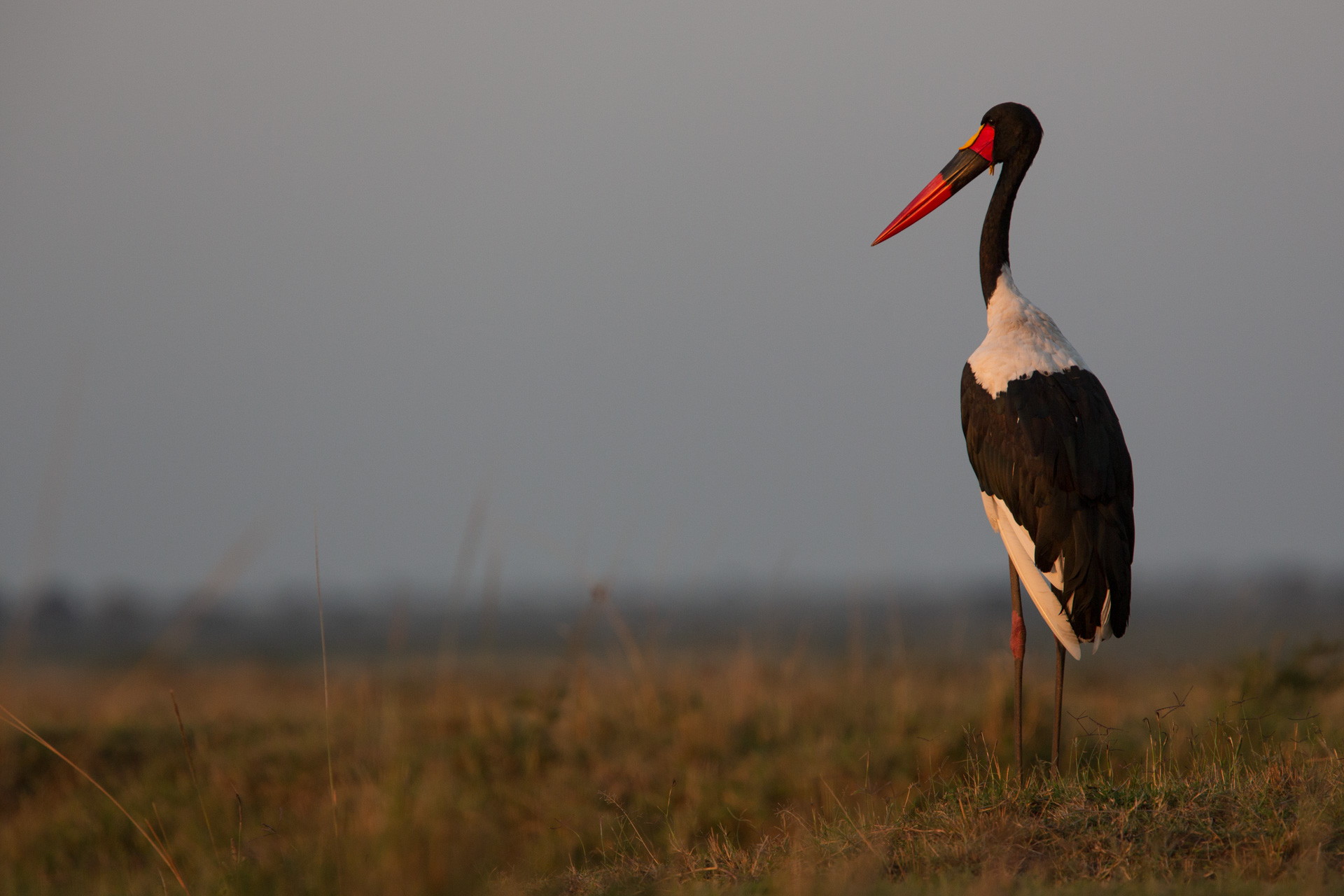
One of the most beautiful birds in the Mara is the saddle-billed stork. The early morning golden light completes this photograph. [f 4.5, 1/800, ISO 500]
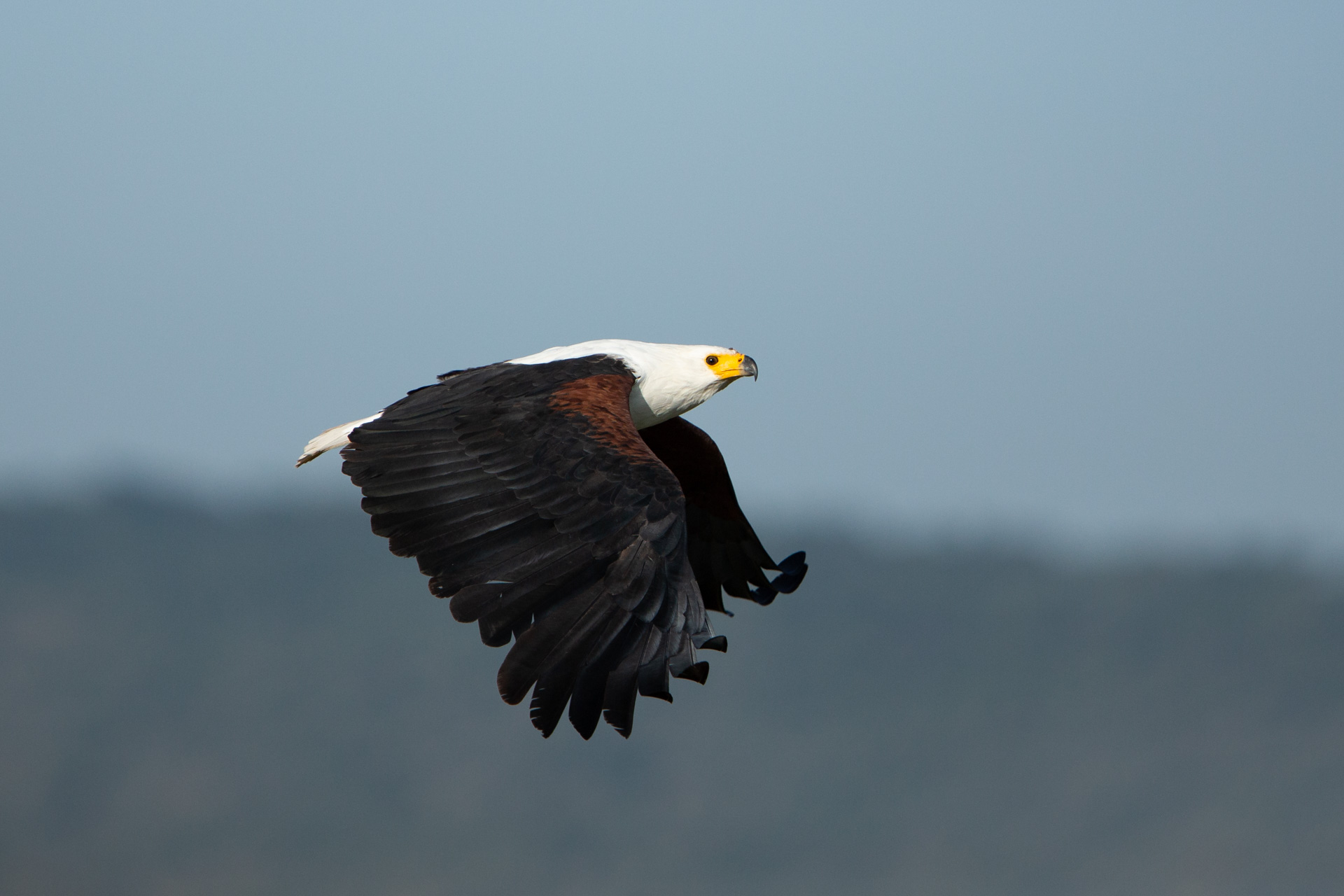
Another of the iconic birds of Africa is the African fish eagle. Early morning game drives along the banks of the Mara River are sure to lead to sightings, and even more beautiful than the bird itself is its characteristic call. [f 4.0, 1/8000, ISO 400, -0.33]
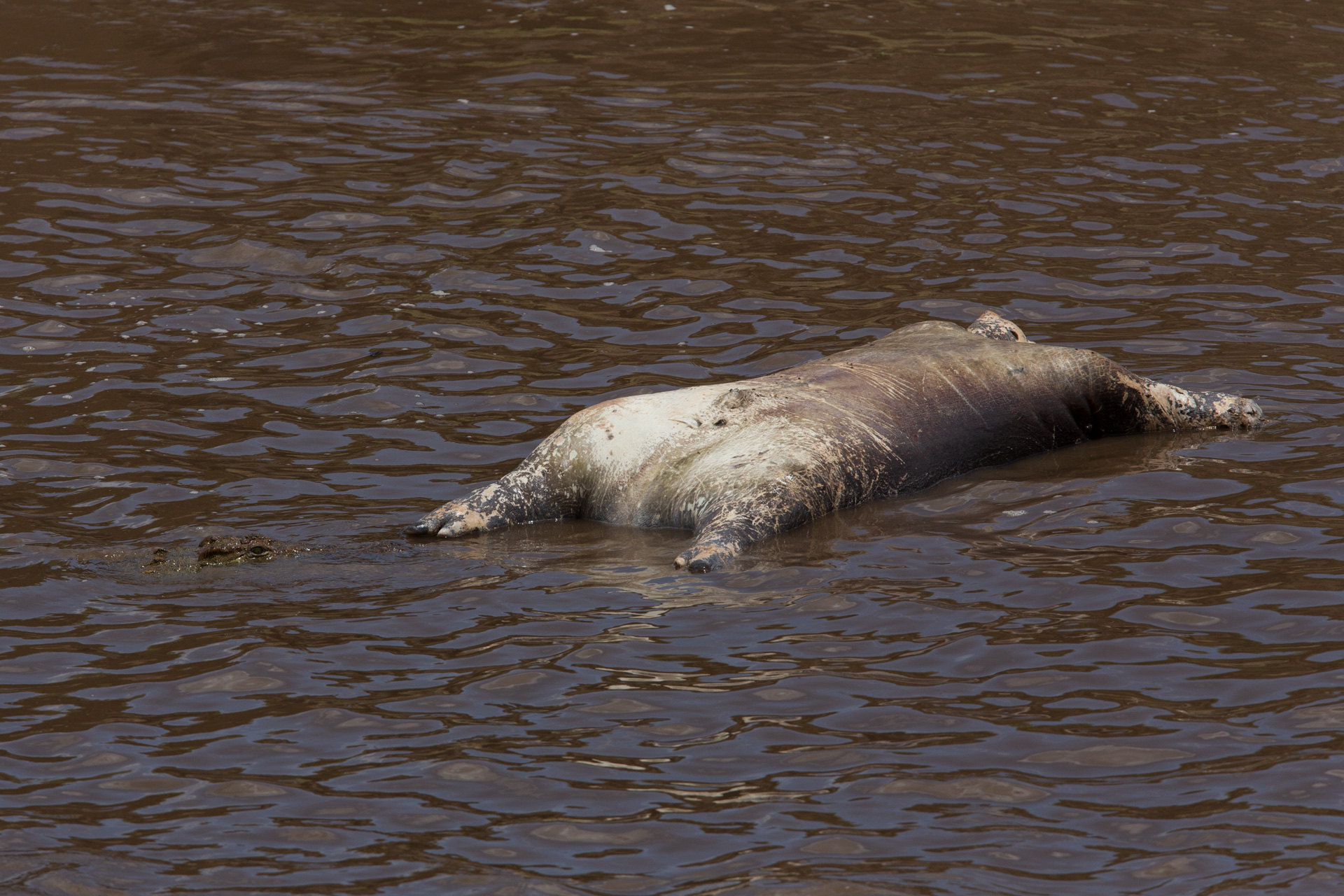
One of the more unusual sightings this week was of a dead hippo, being fed on by a crocodile, bloated and floating down the Mara River. [f 7.1, 1/2500, ISO 320, -0.67]
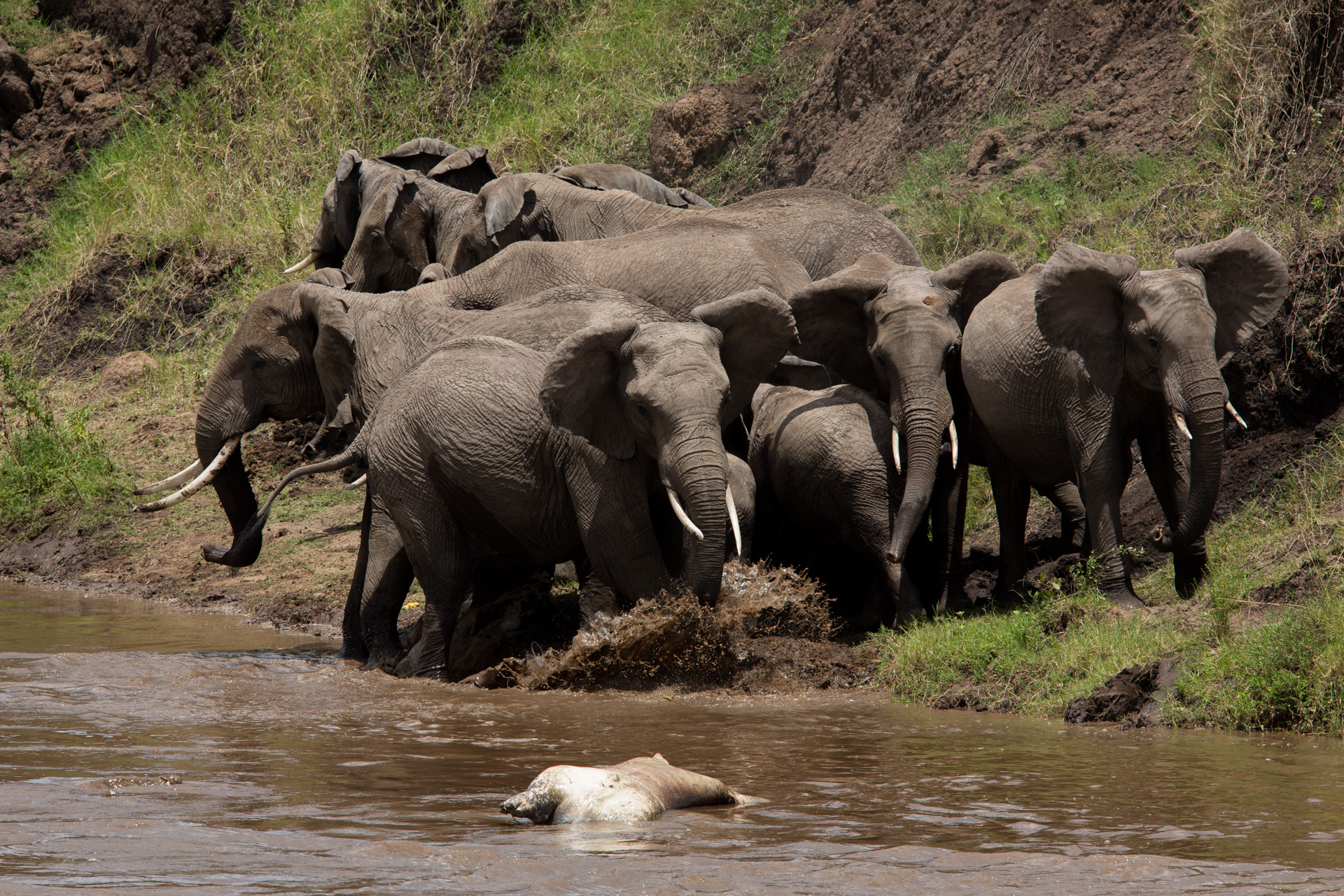
We drove alongside the rather grotesque hippo for a while, when it rounded a bend and headed towards a family of elephant that were drinking in the heat of the day. It was amazing to see how quickly the elephant family grouped together, surrounding the smallest ones, with the matriarch thrashing about in the shallows, presumably to scare off the crocodile. [f 8.0, 1/1000, ISO 320, -0.67]
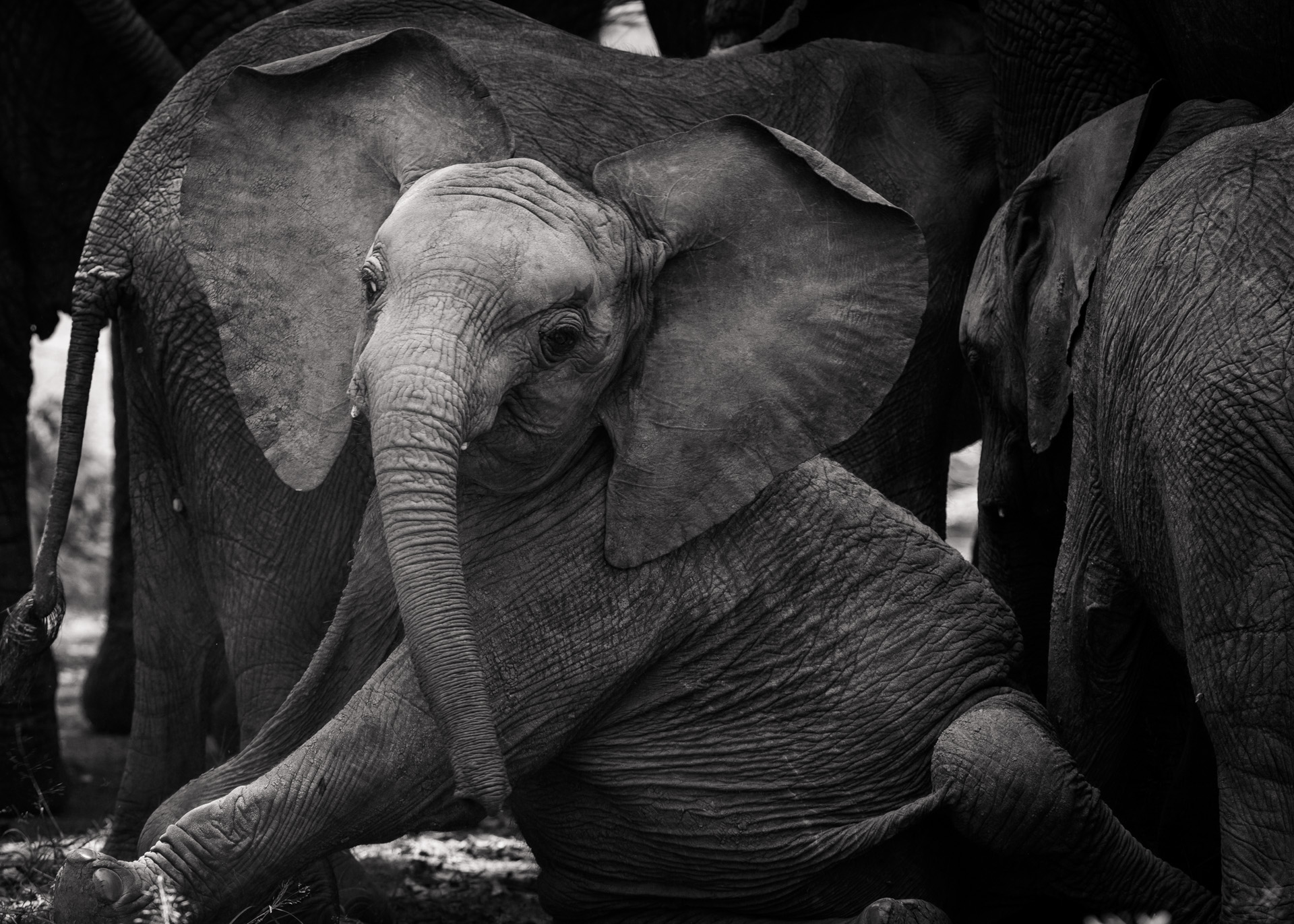
We came around a corner and bumped into another family of elephants having a sleep. The adults were gently propped up against trees and the youngsters were passed out on the floor. For about 10 minutes we sat in silence, and in awe, as we watched them all sleeping. Slowly one by one they woke up. This little baby was the last to stand up, and did so rather groggily. [f 7.1, 1/320, ISO 640, -0.33]
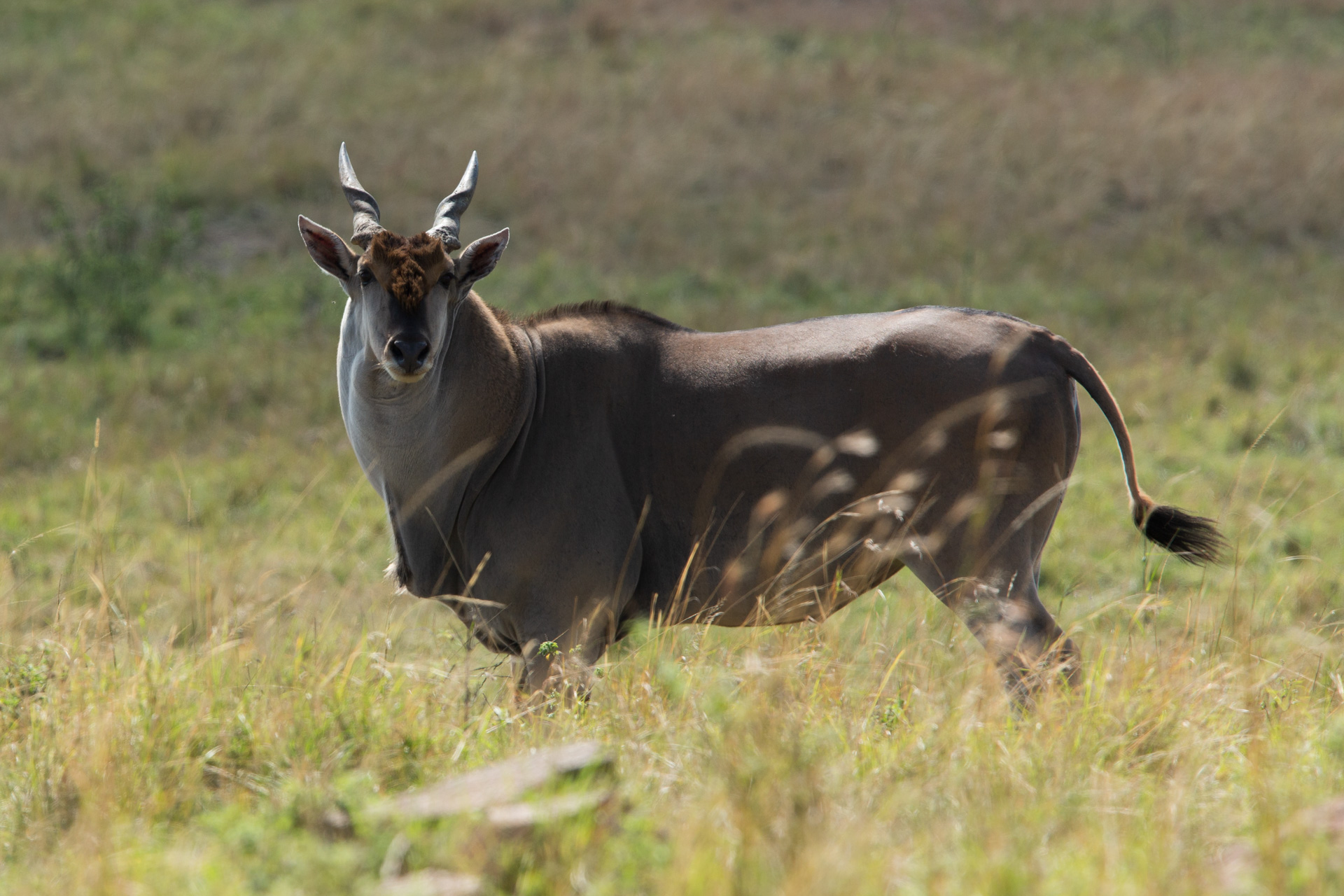
Eland hardly ever featured in this blog series. I saw this huge male when returning to camp one day and just wanted to get a shot to showcase the size of his neck – it was huge. [f 6.3, 1/640, ISO 250, -0.33]
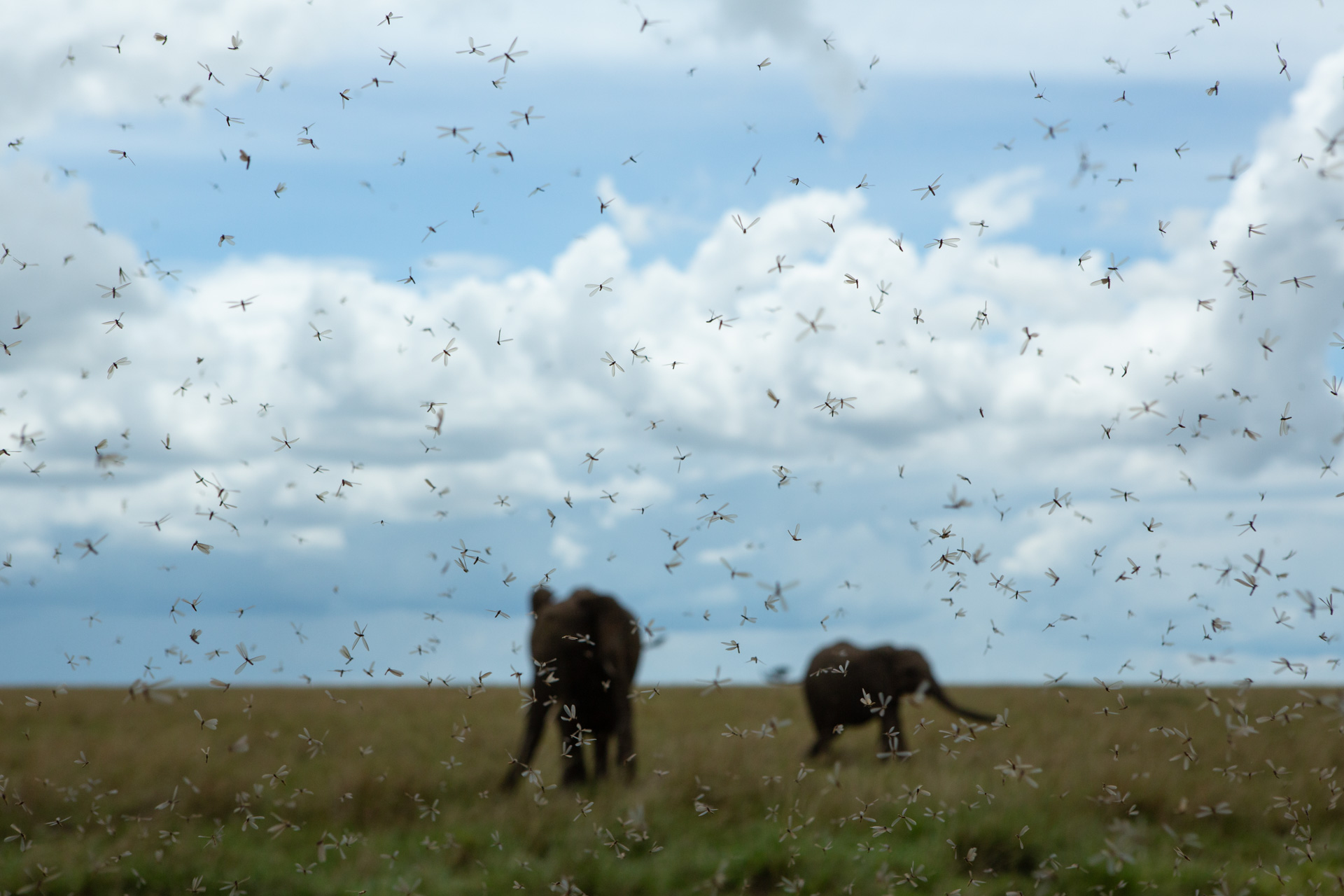
This is one of my favourite times of the year because of the drama, both on the ground and in the skies. A sudden 10-minute long deluge of rain released an explosion of alates (flying termites) into the air. This lasted for a few minutes, but allowed for some bizarre photo opportunities, like for example this photograph of a swarm of thousands pestering a small family of elephants. [f 7.1, 1/1600, ISO 320, -0.33]
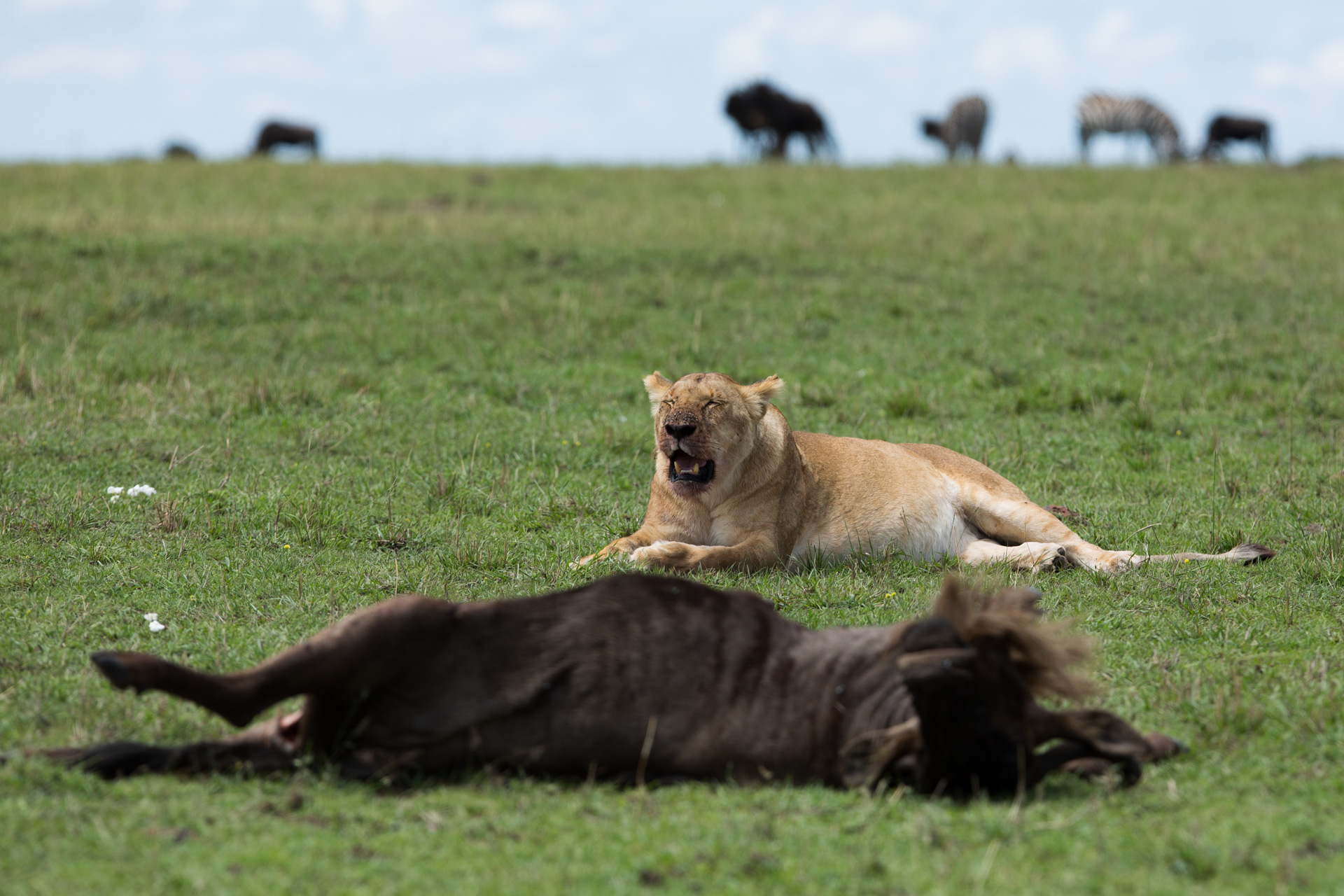
There are still the last traces of the migration down in the south of the Triangle. The resident lion prides are making the most of this time of plenty. By Christmas, the situation will be very different and the time of plenty will be over for these cats. [f 5.0, 1/640, ISO 100, -0.33]
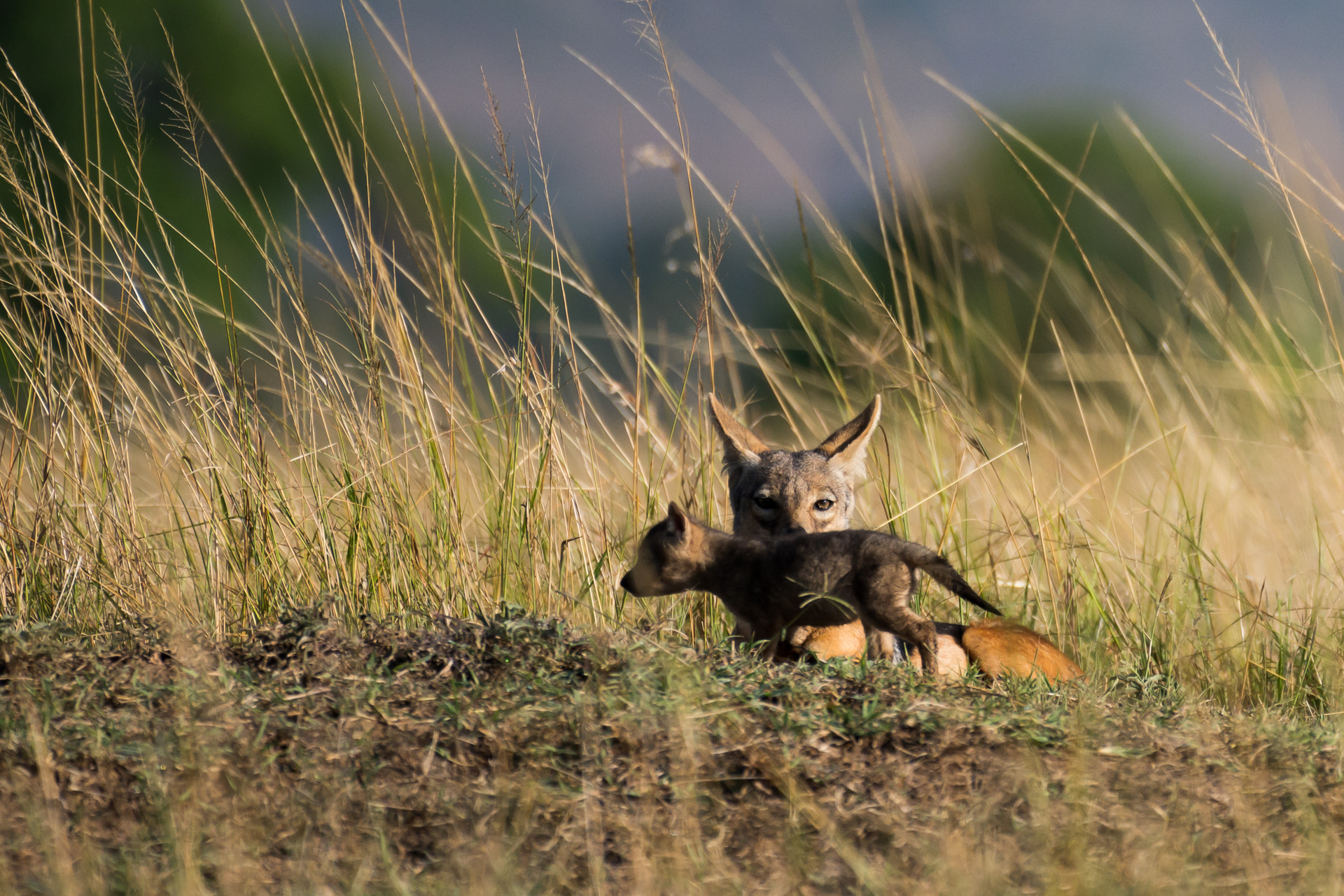
One morning I came across two jackal sitting next to a burrow in a termite mound. Their behaviour seemed odd. I switched off the engine and sat. After 15 minutes, I decided that perhaps I was parked too close and drove to about 40 meters away. Within minutes, two brand new jackal pups came out of the burrow and very cautiously started moving around. * Note this was taken with a 500mm lens and is cropped in a further 50% so it is far away. [f 5.6, 1/3200, ISO 800]
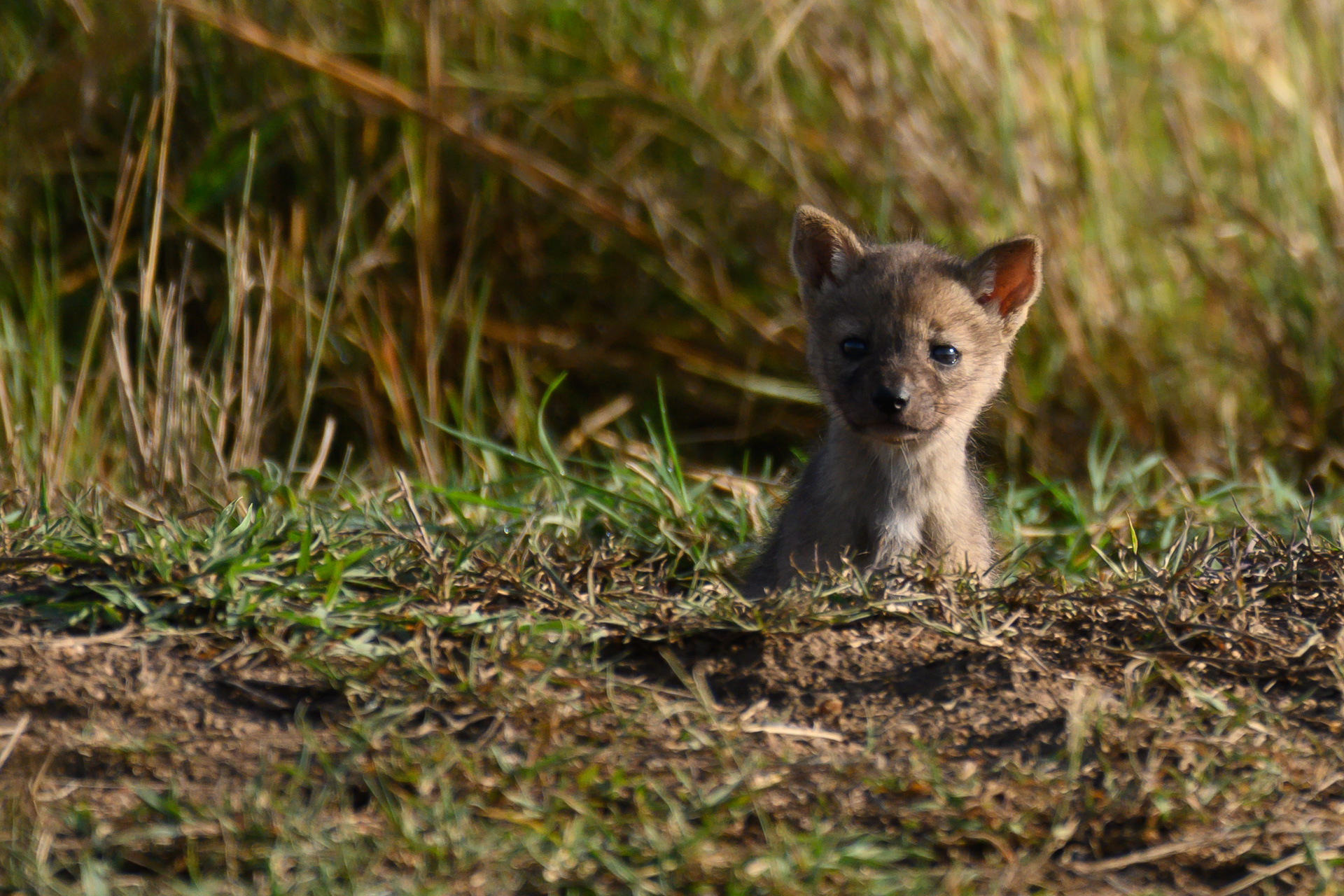
I decided to dedicate the next hour to this jackal den site and I sat. With time, the pups and the parents relaxed a little bit. I was able to drive the car slowly closer and closer until I got to about 20 meters away. How cute is this little guy? [f 5.6, 1/3200, ISO 800]
The next few shots are all of the same pride over the course of two drives. One of the lionesses from the Marsh Breakaway Pride has had cubs and we have been fortunate to have some incredible sightings. Initially there were four of them, but they lost one fairly early on. For now it seems that the three remaining cubs (two girls and one boy) are healthy and strong. The pride itself, at this stage, is only an older lioness (mom) and a younger lioness (presumably her daughter from a previous litter). The two of these lions are having to work hard to keep these three cubs safe and well fed.
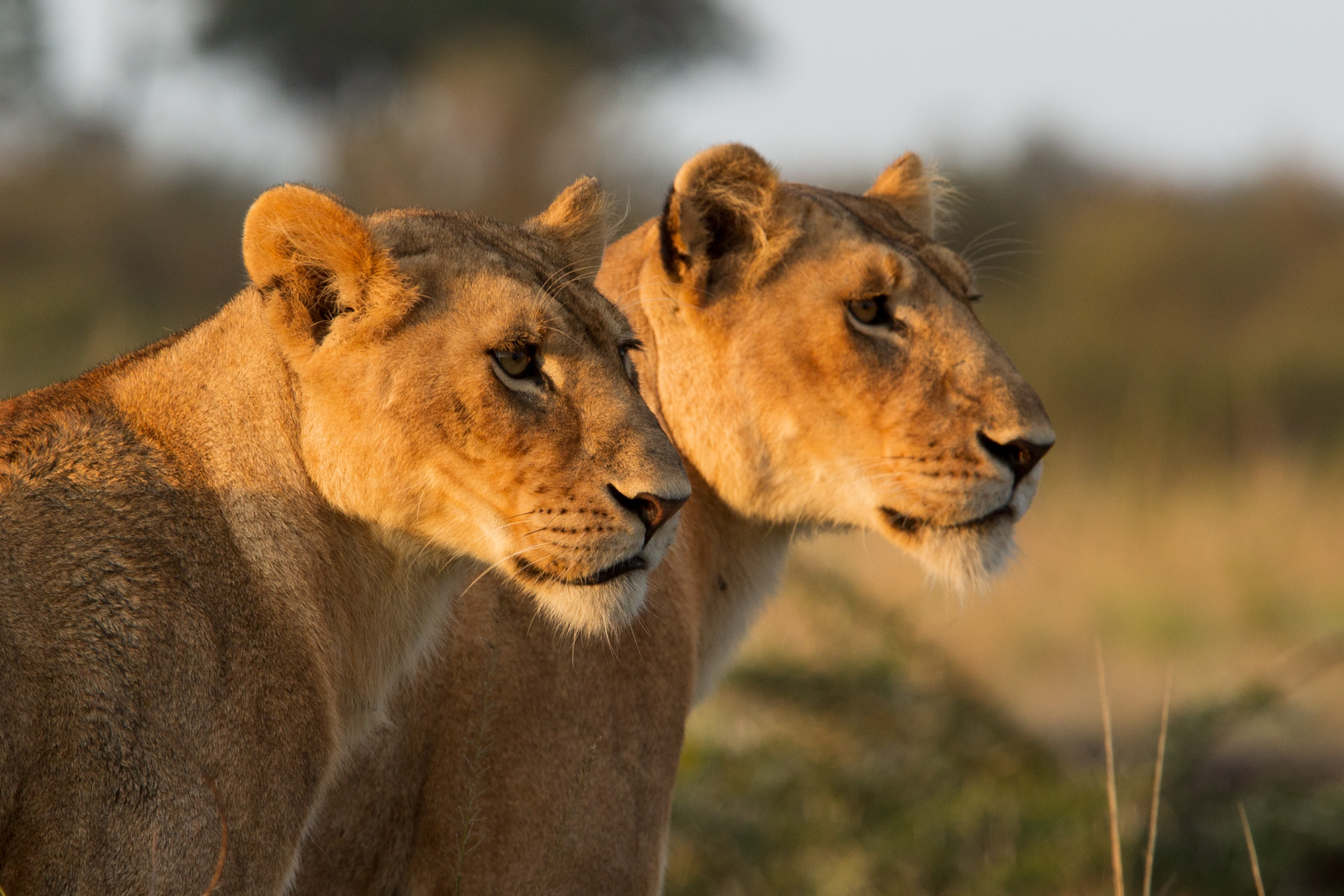
The mother of the cubs is at the back, the aunt at the front. They are inseparable. [f 9.0, 1/125, ISO 500]
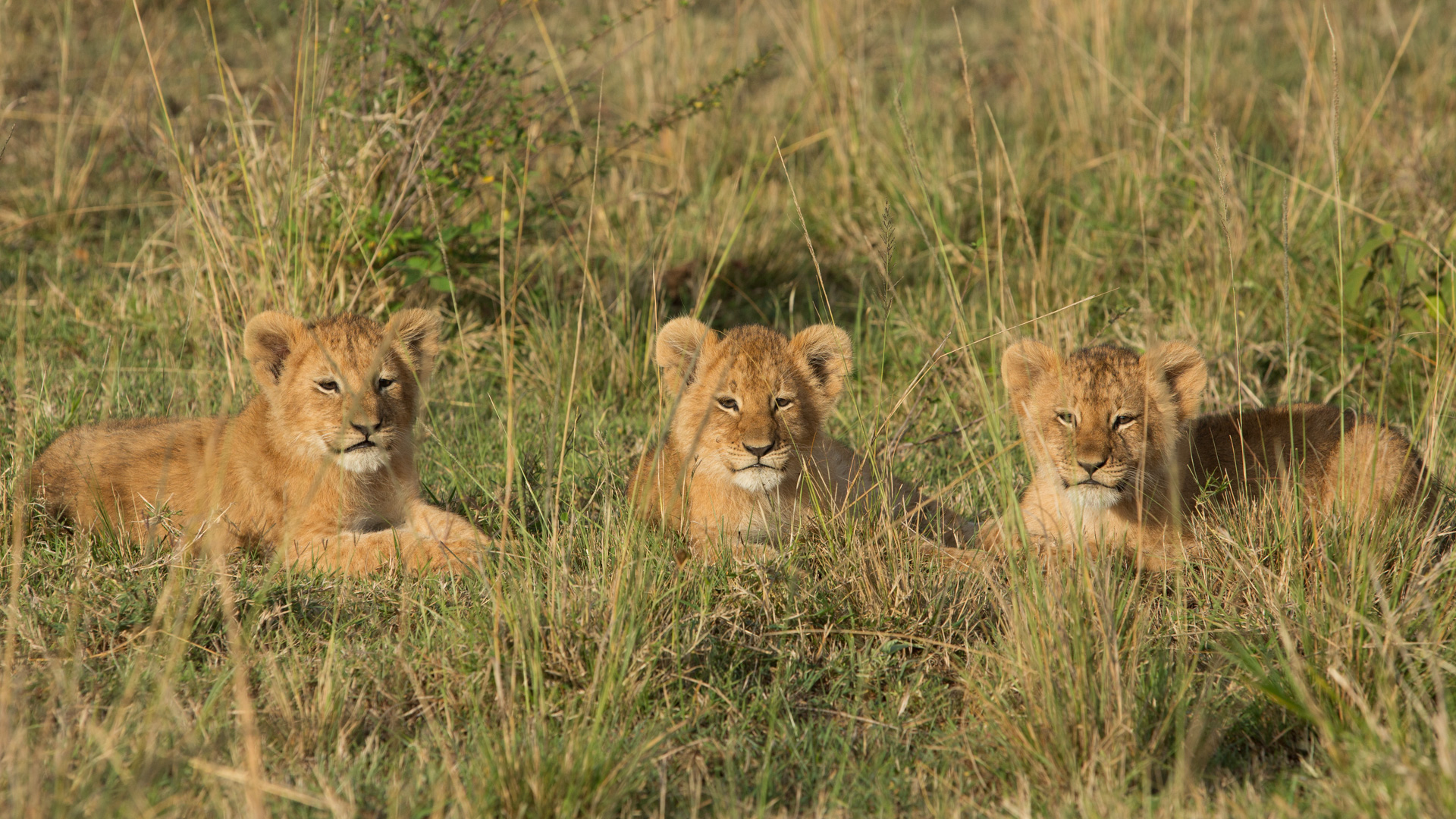
These are the three cute cubs. [f 9.0, 1/1000, ISO 500, -0.33]
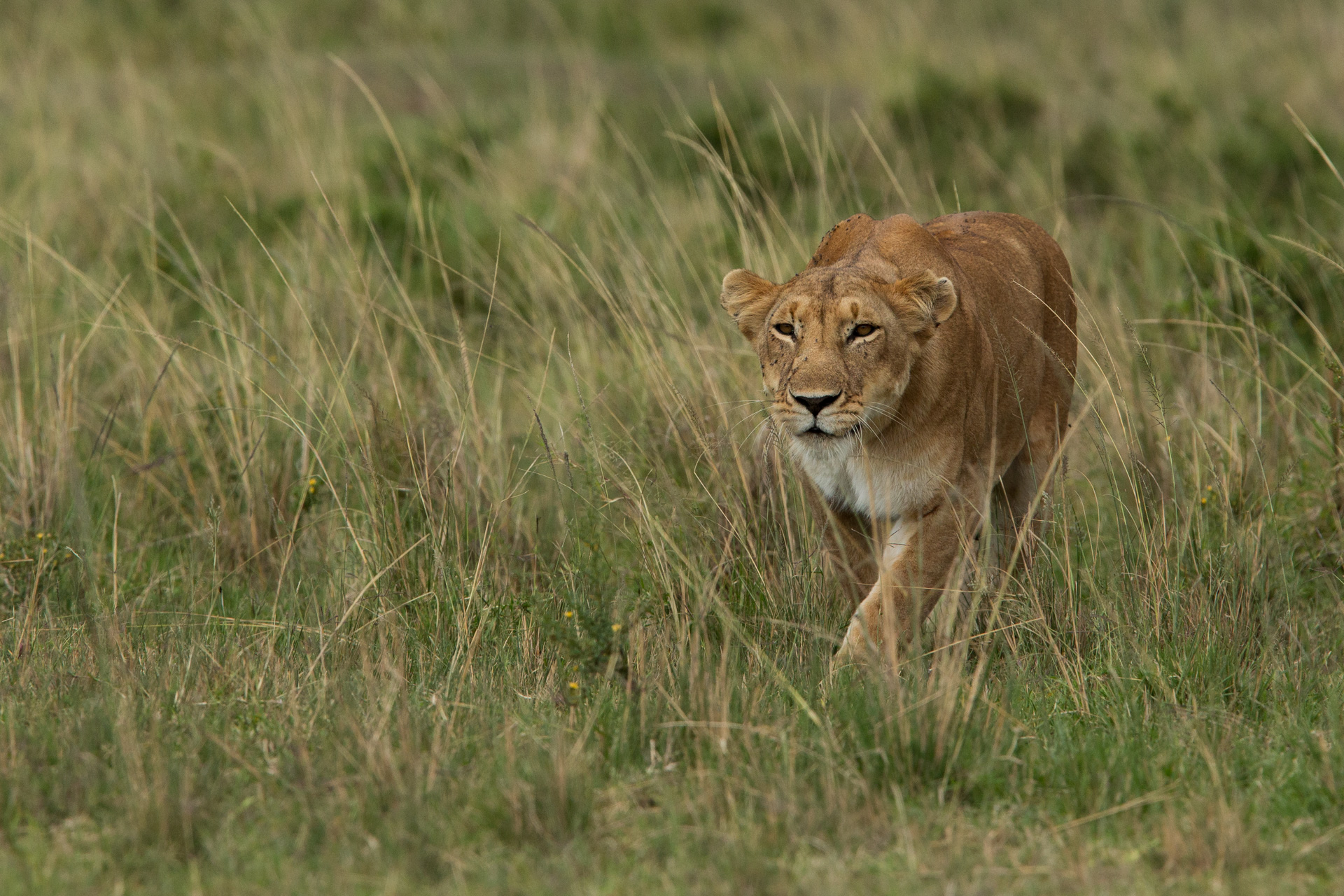
With only two adults, the mother is having to spend a lot of time hunting in the grasslands. [f 7.1, 1/3200, ISO 800, -0.33]
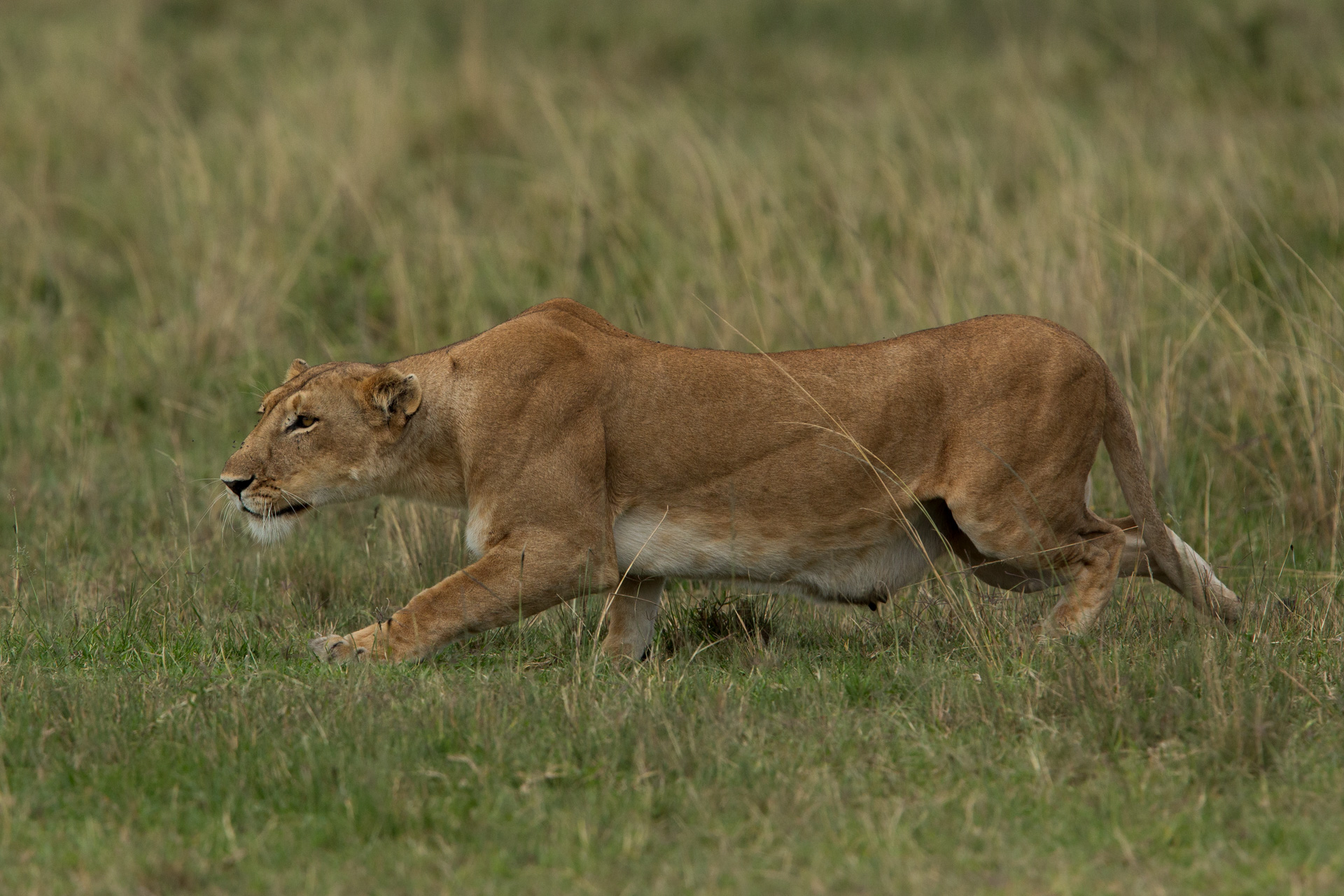
You can see how difficult it is for her so laden with milk. [f 7.1, 1/3200, ISO 800, -0.33]
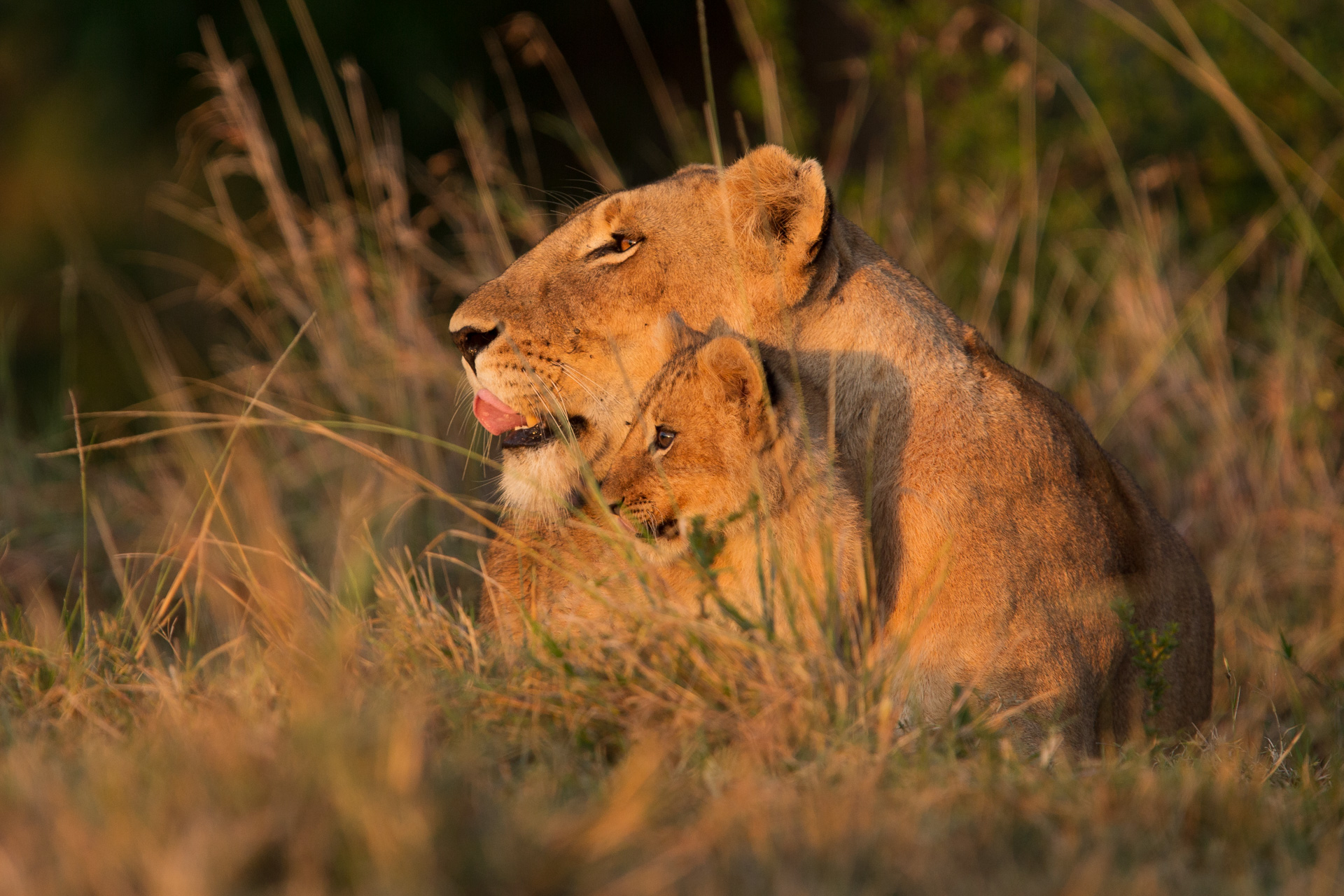
There is no safer place for a lion cub than in-between mom’s paws. [f 4.5, 1/500, ISO 500]
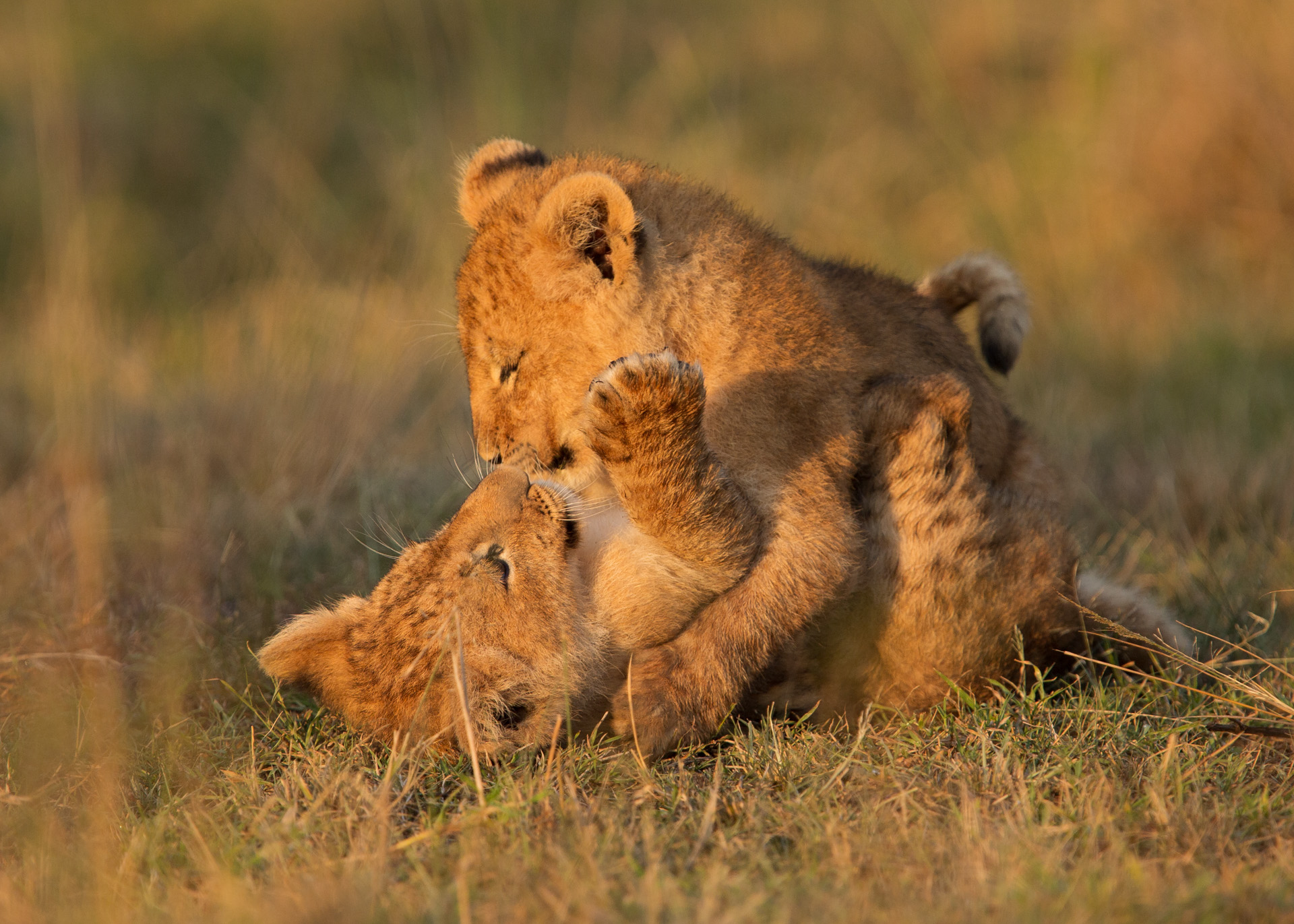
Playtime in the Mara. [f 4.0, 1/800, ISO 500]
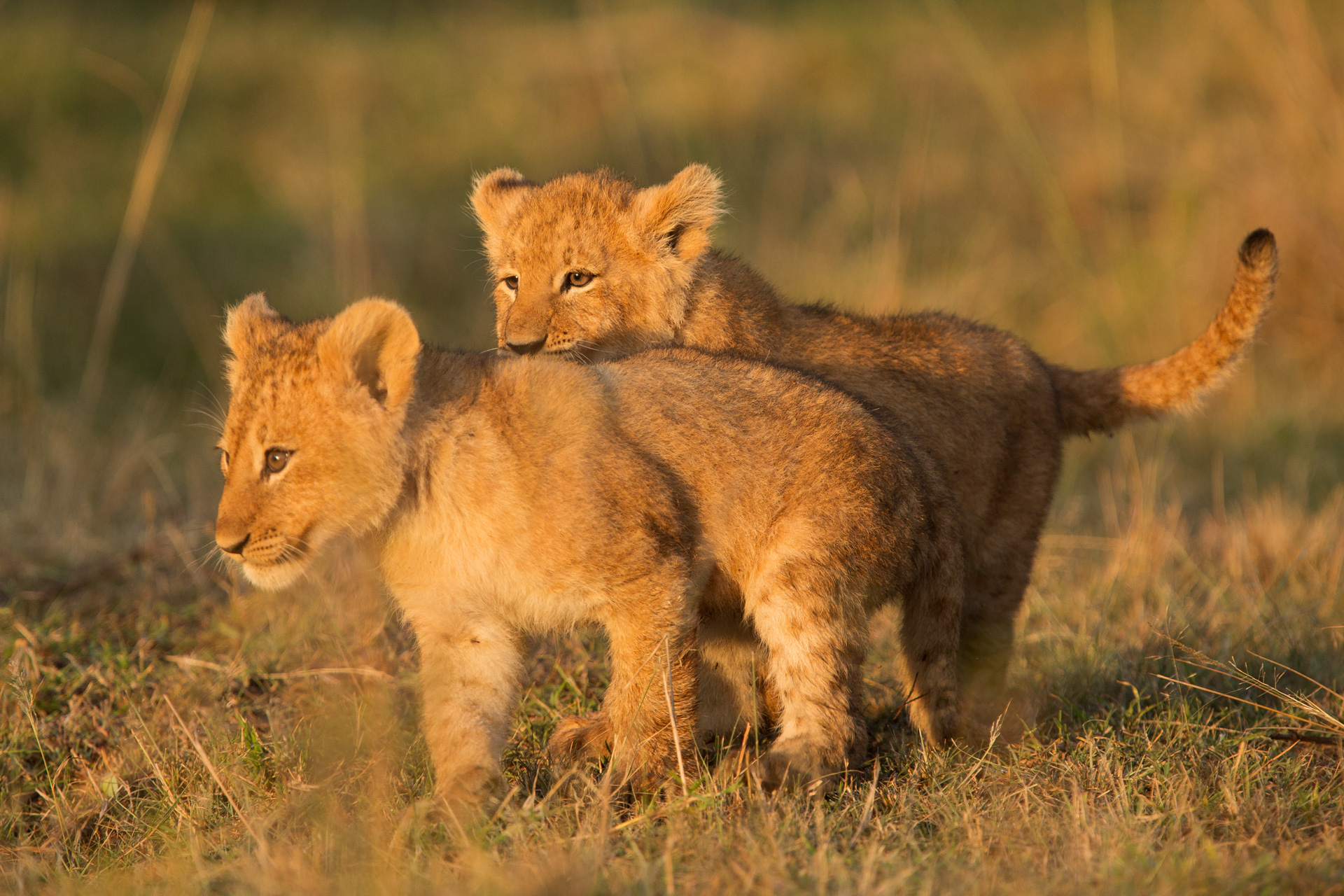
That golden morning light – 6:15am and not a single other car around. [f 4.0, 1/800, ISO 500]
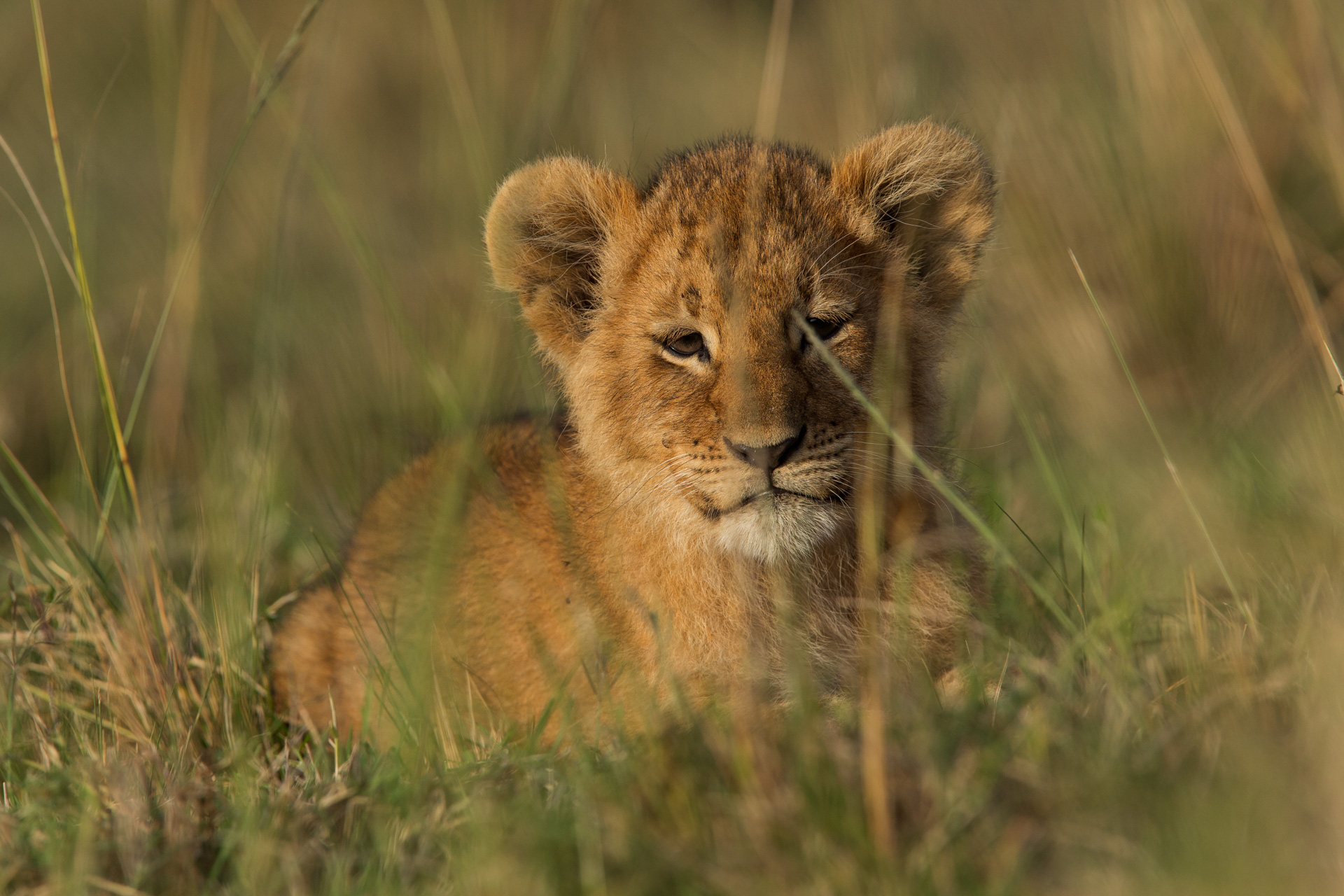
Sleepy eyes after a play session. [f 6.3, 1/800, ISO 320, -0.33]
This Week a Year Ago
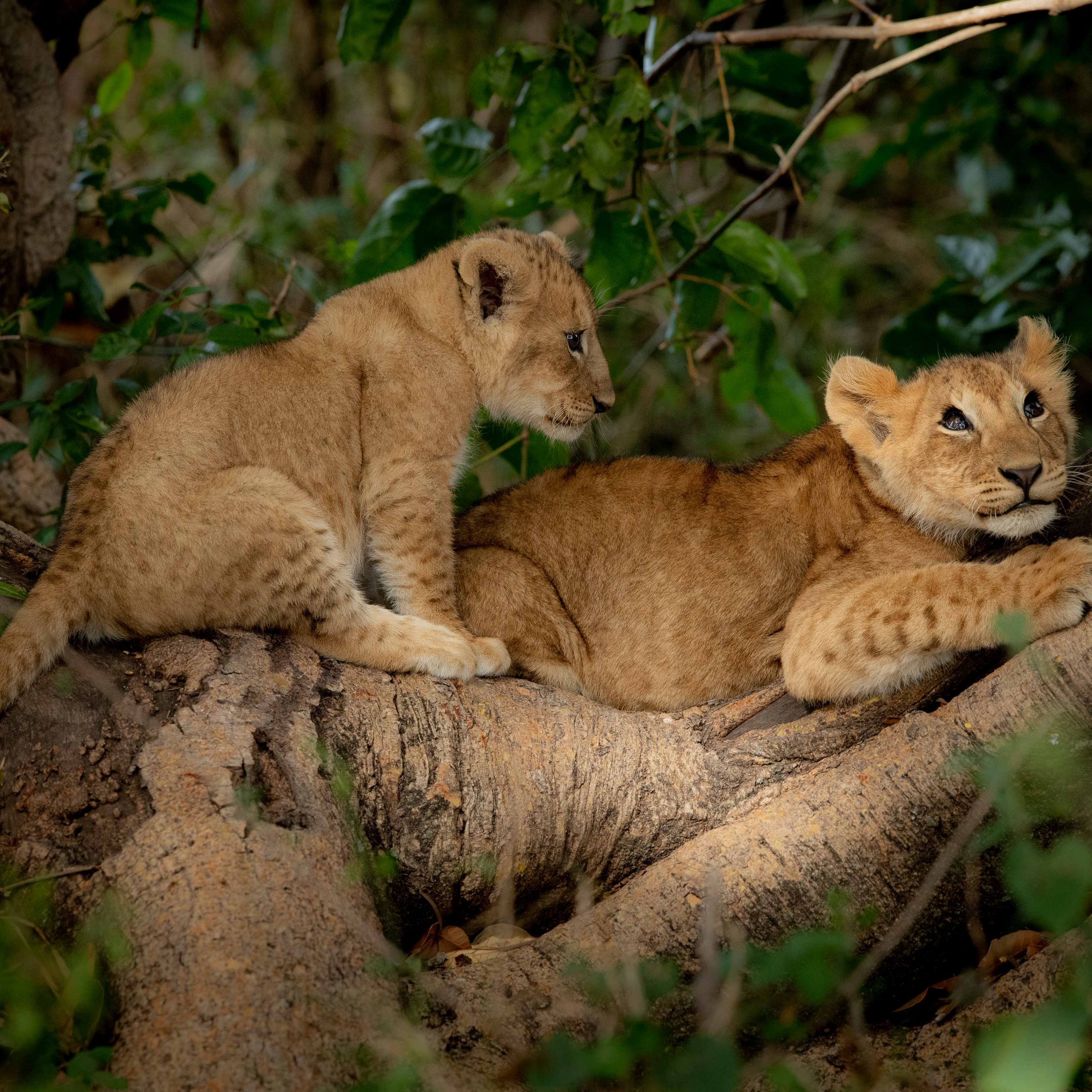
A year ago, out on drive with Angama guest, Graham Wood, we were treated to another set of cubs (of a similar age), this time belonging to the Sausage Tree Pride. They were very playful and running around in the lower canopy of a fallen fig tree. It seems that early November is the time of lion cubs. [f 5.6 iso 3200 400mm 1.1000 1/3 EV WB 5560]
– photo by Graham Wood
Filed under: This Week at Angama
Subscribe for Weekly Stories
Comments (0):
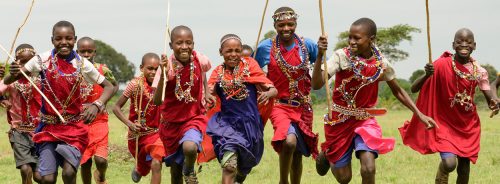
The Angama Foundation